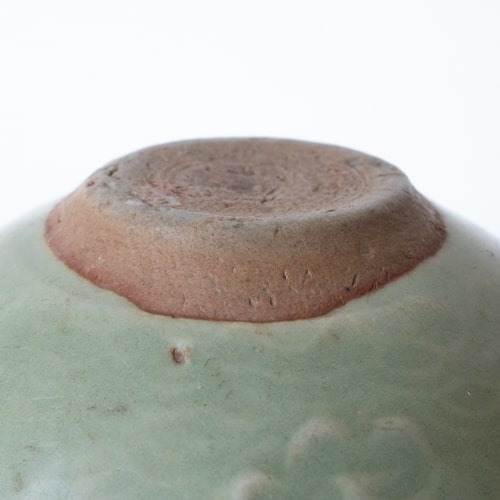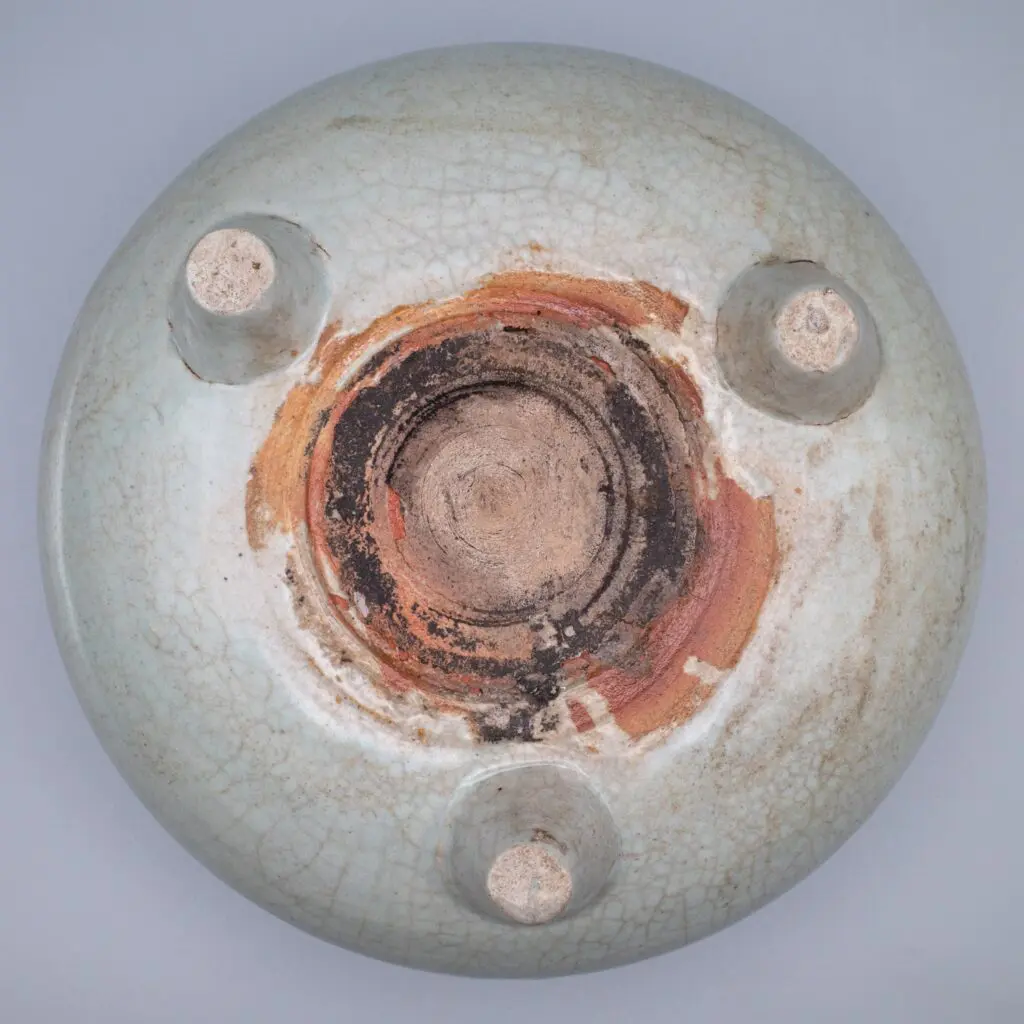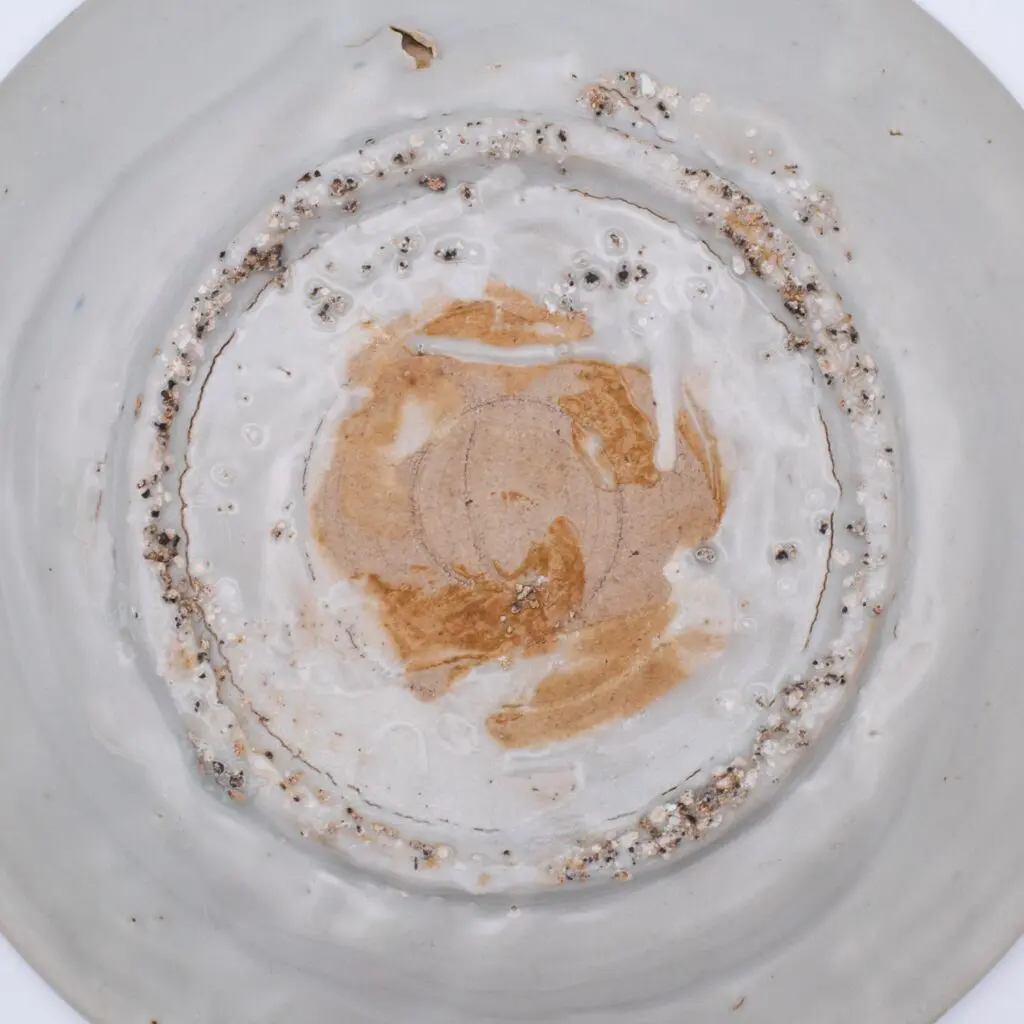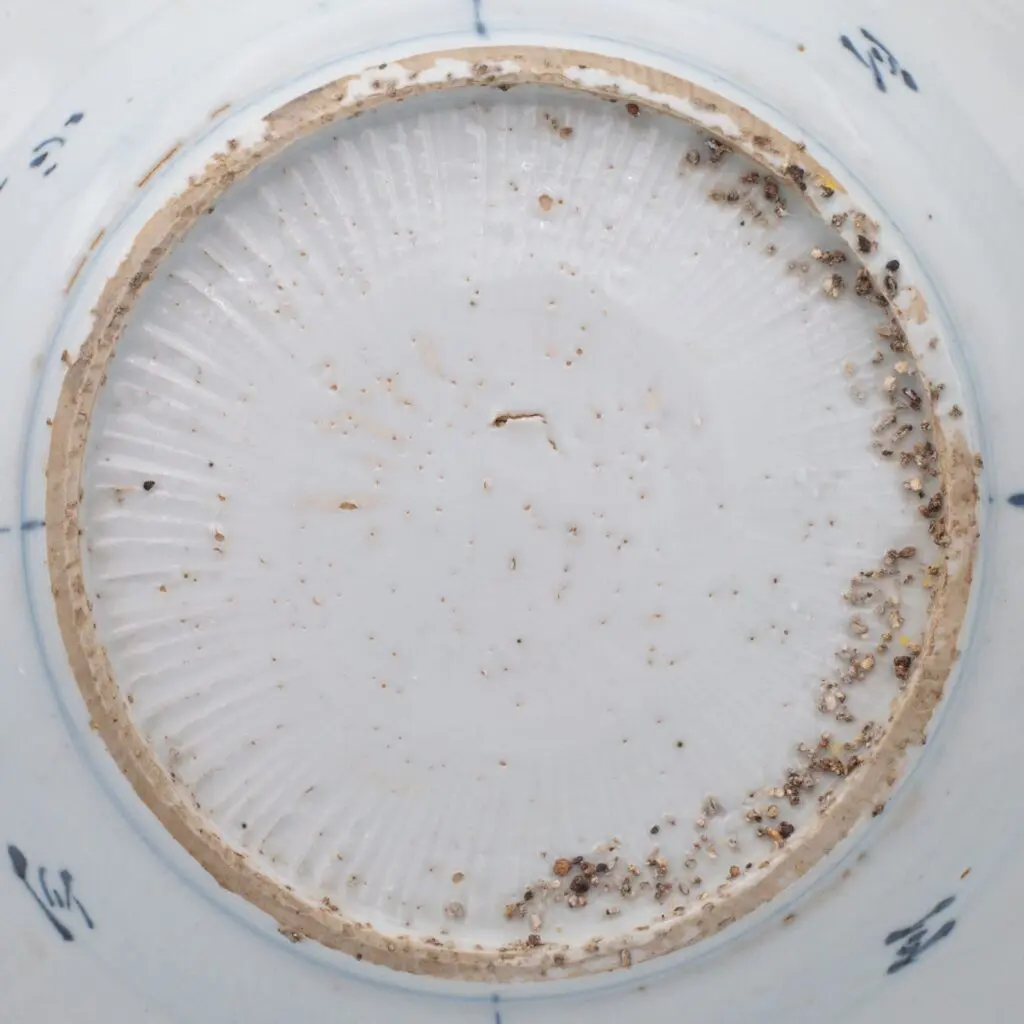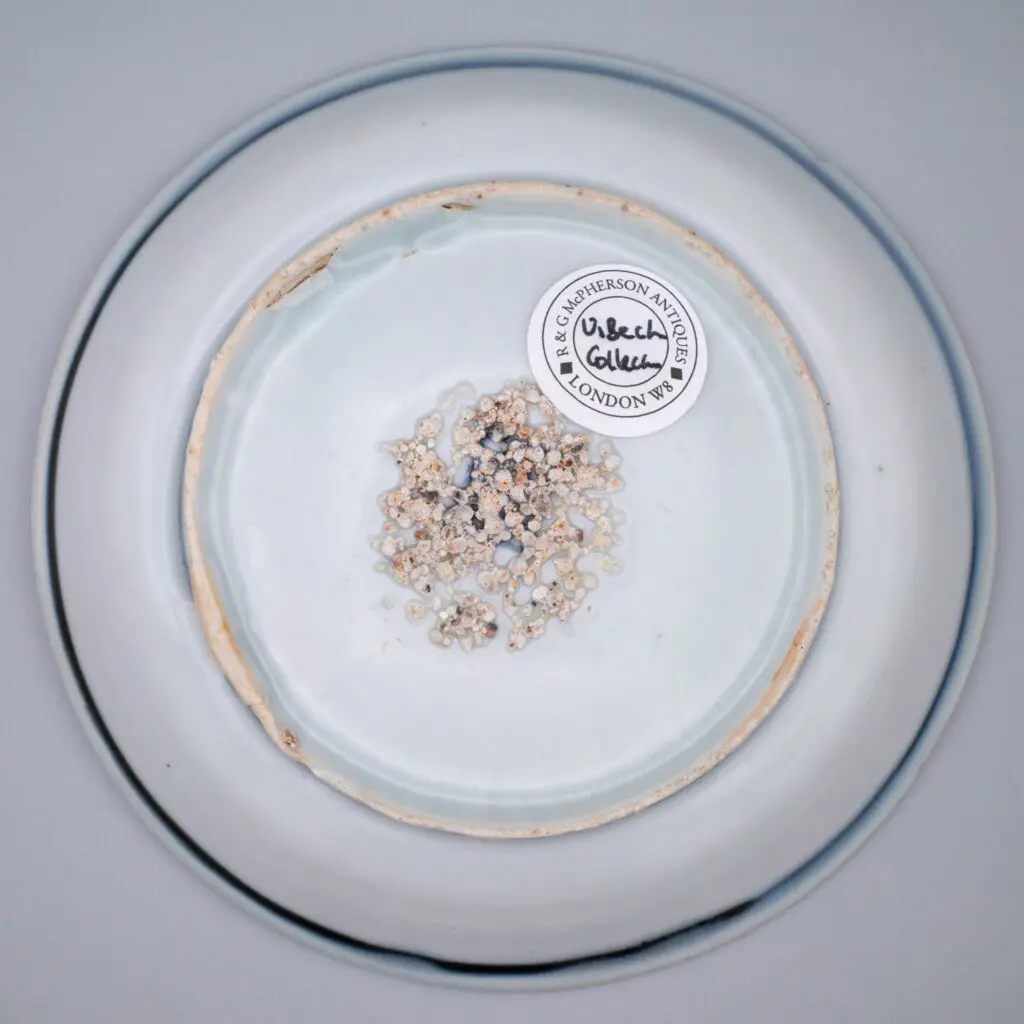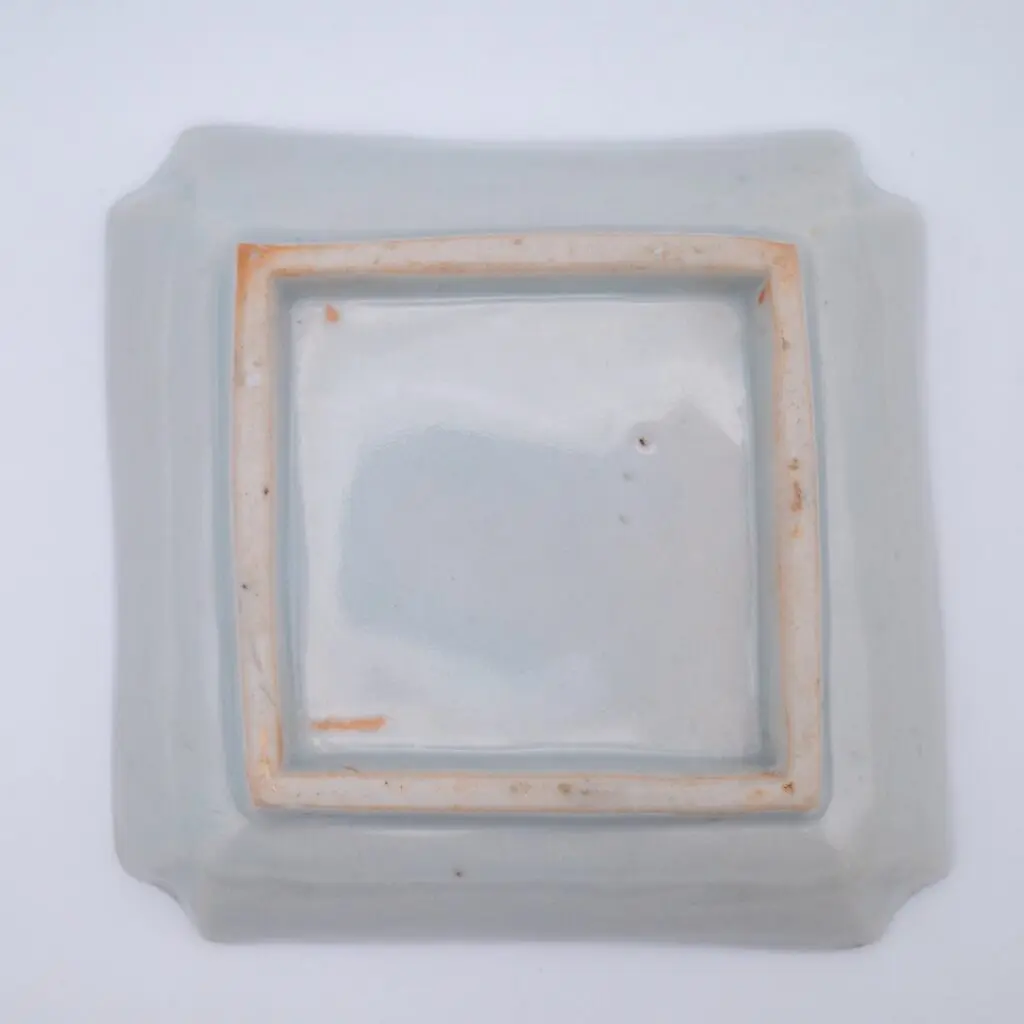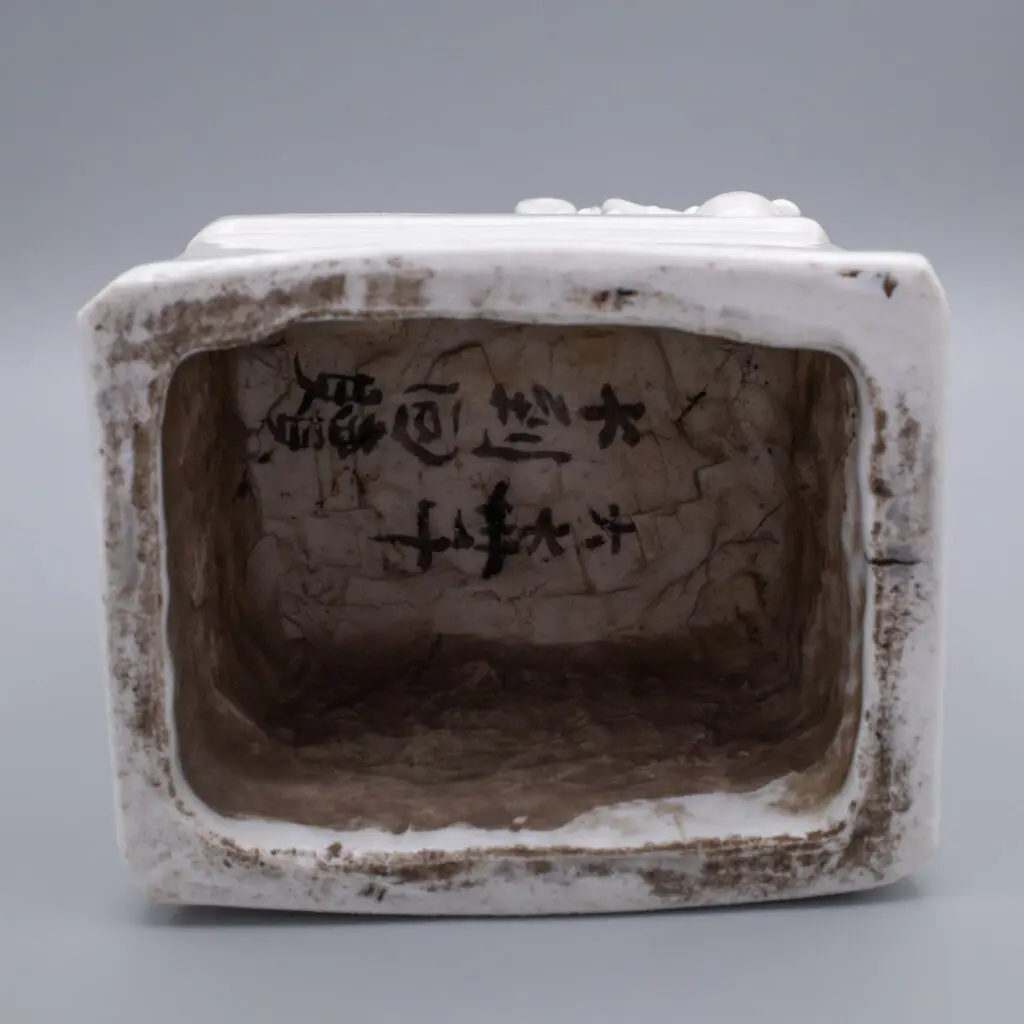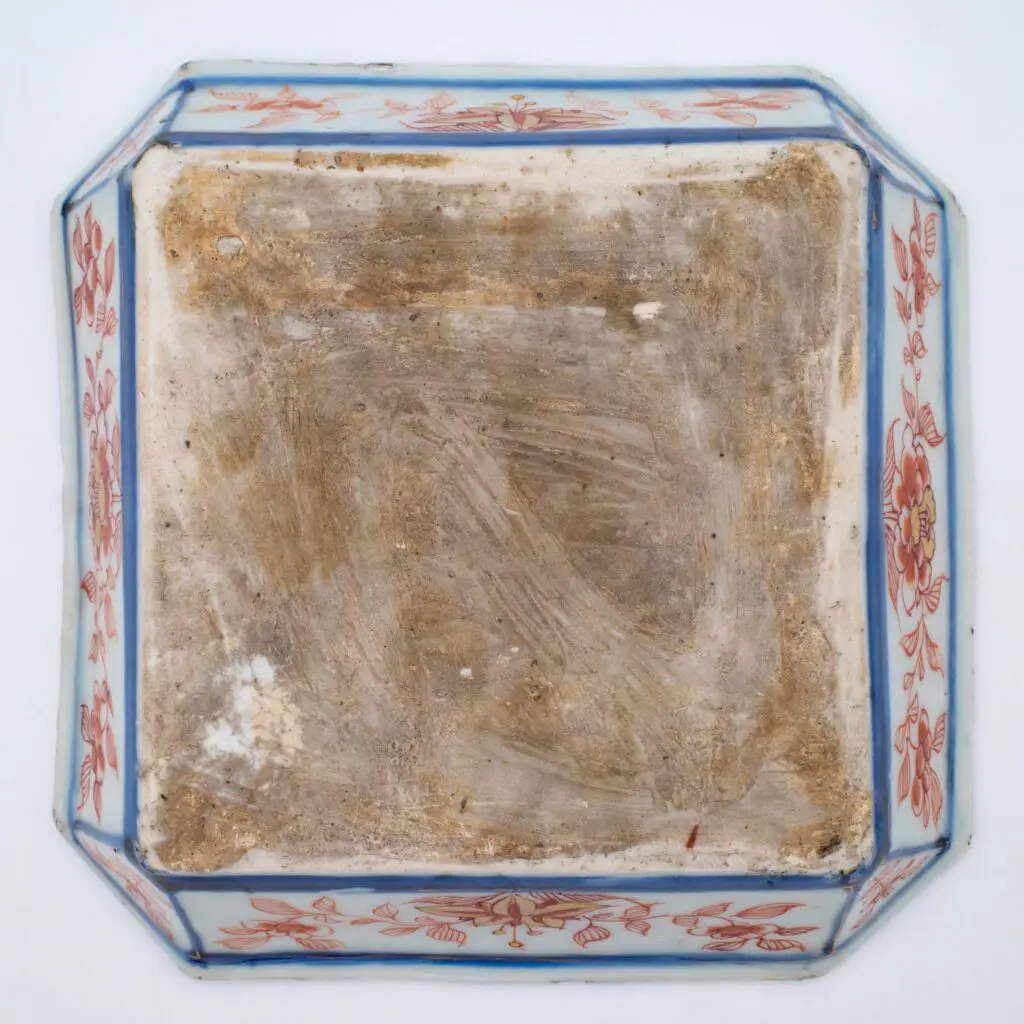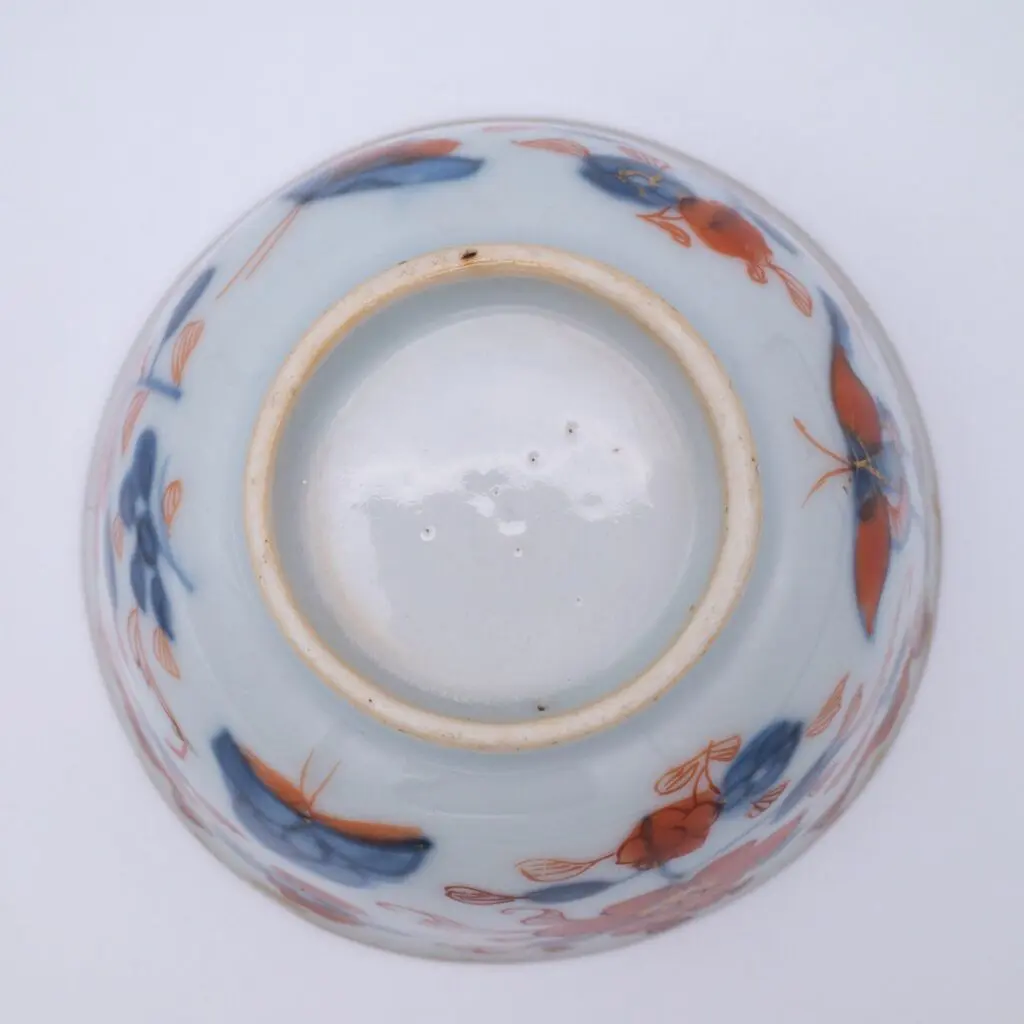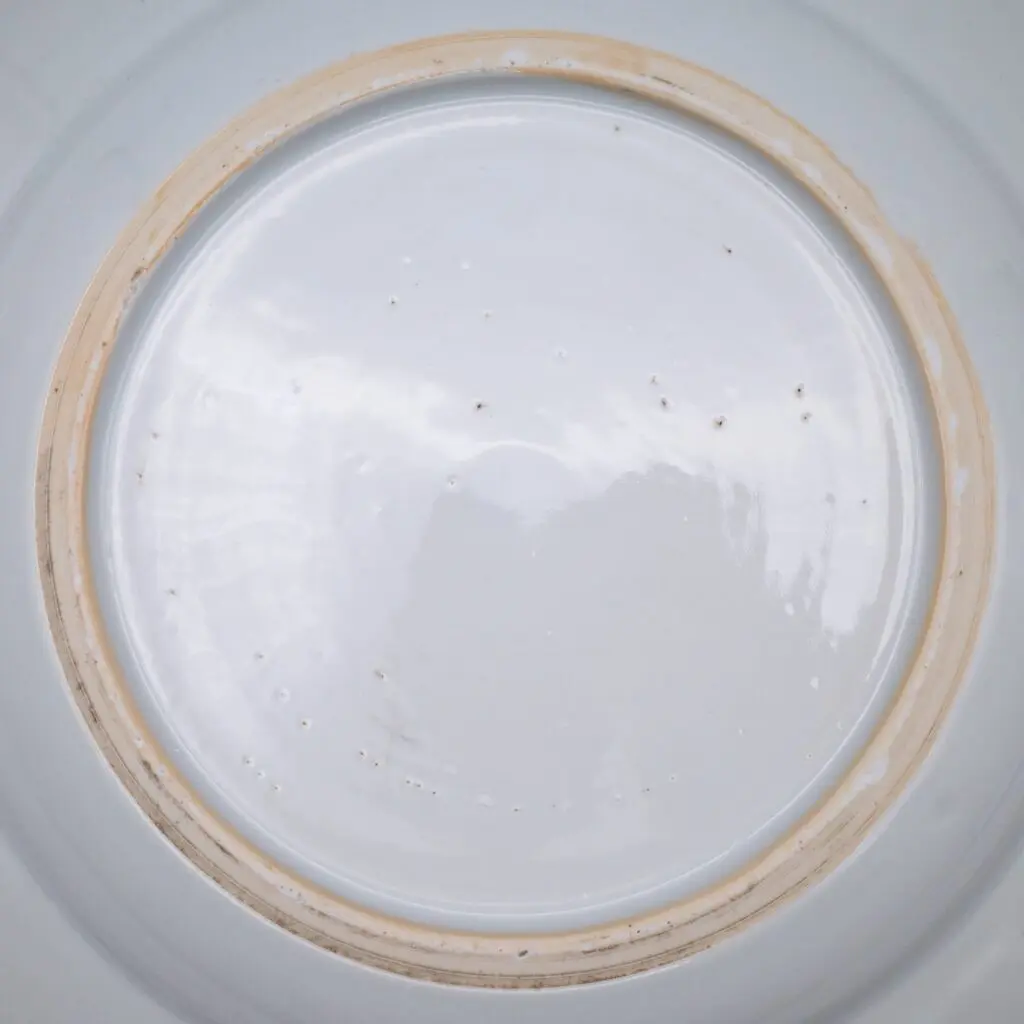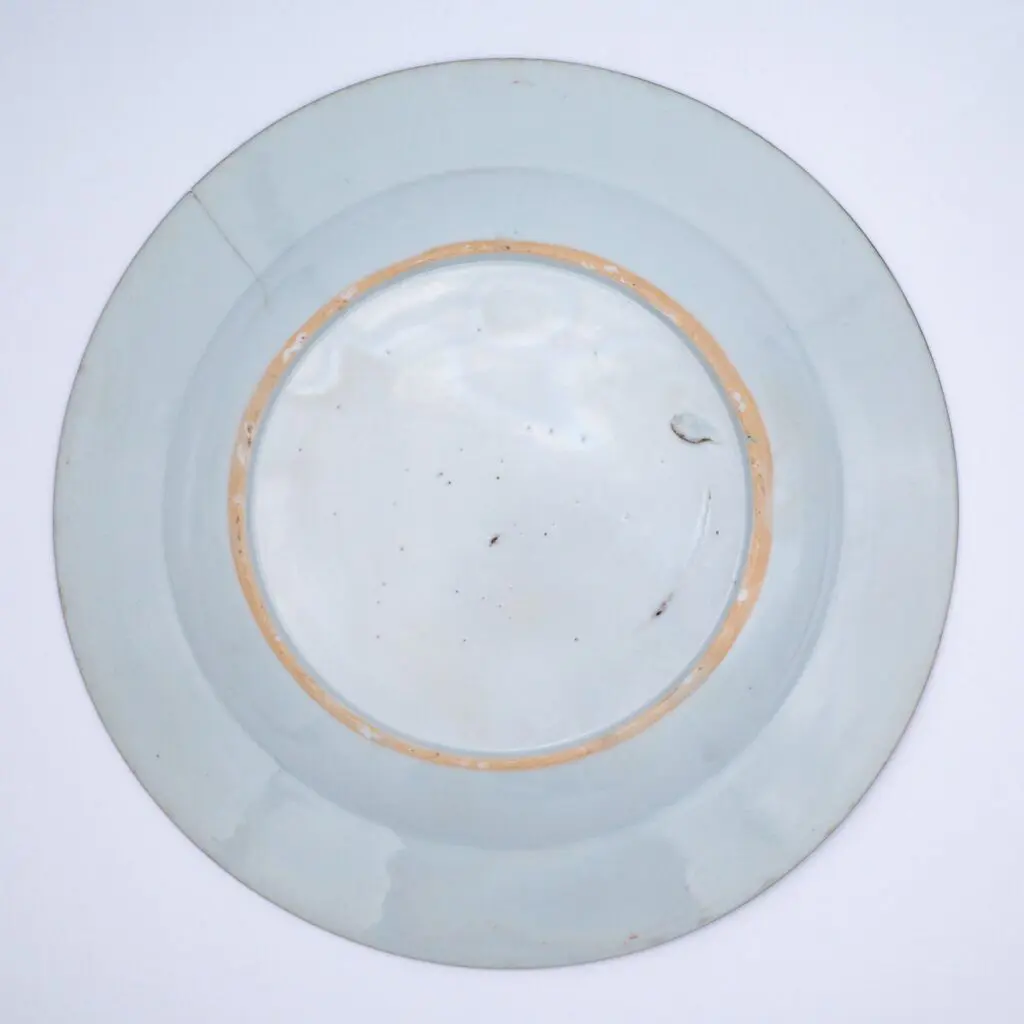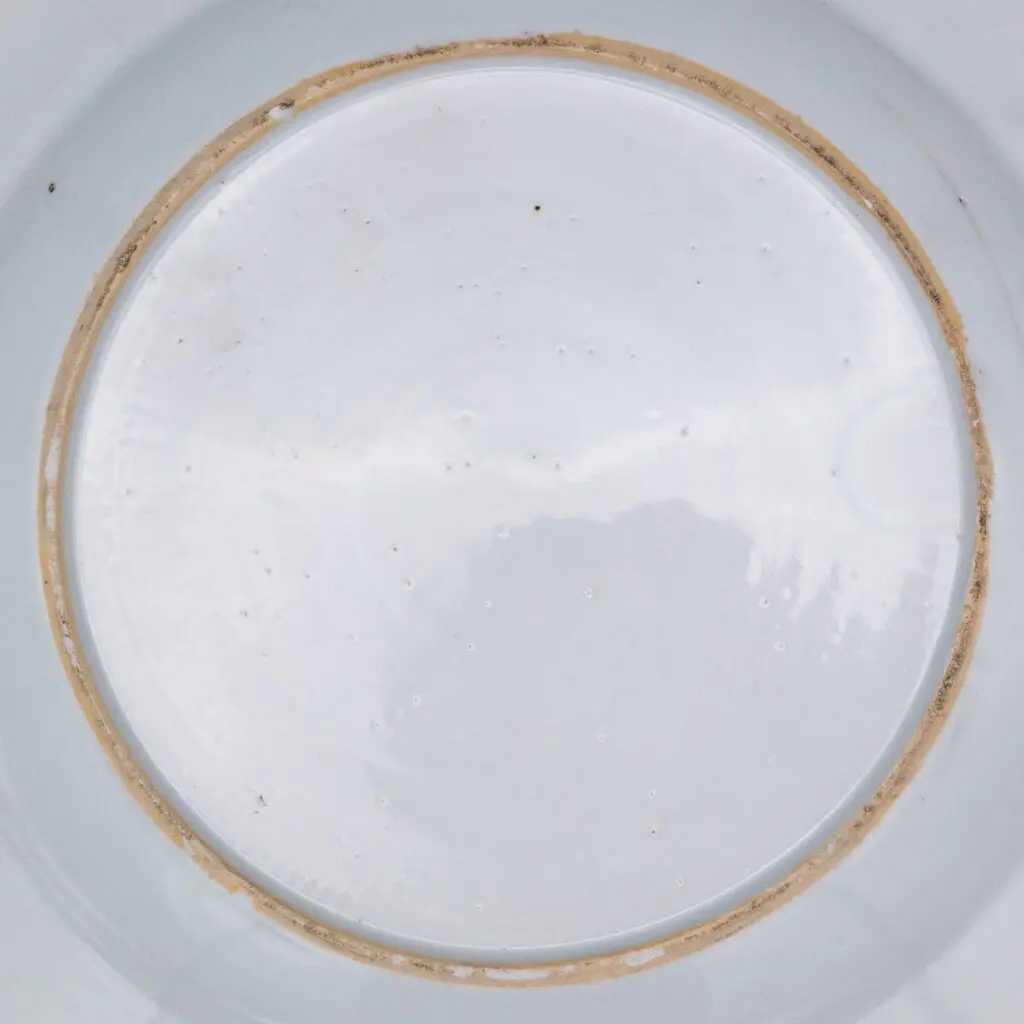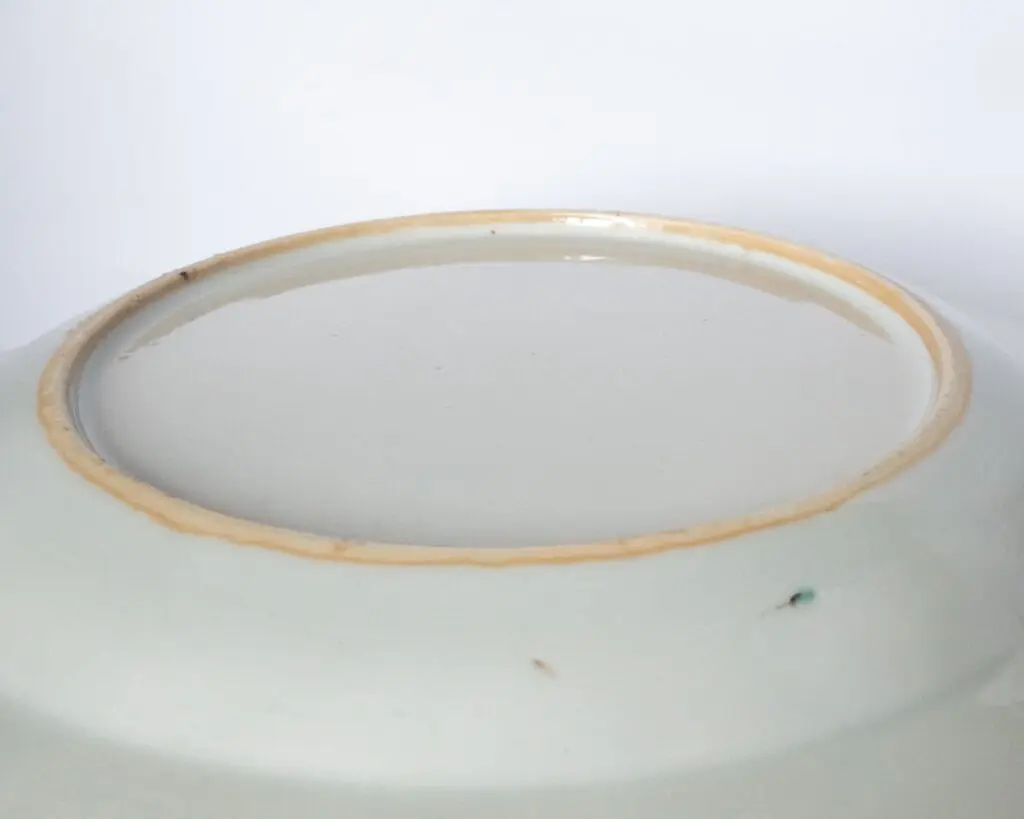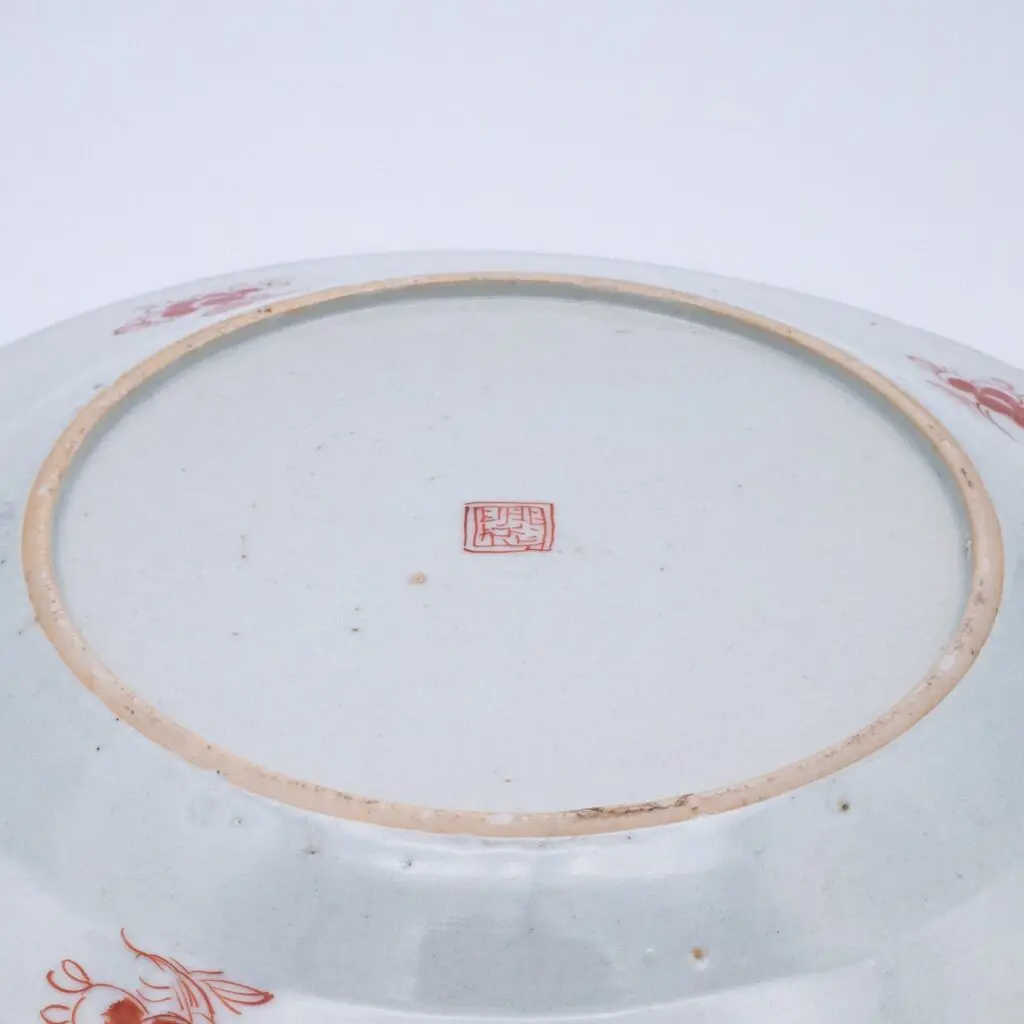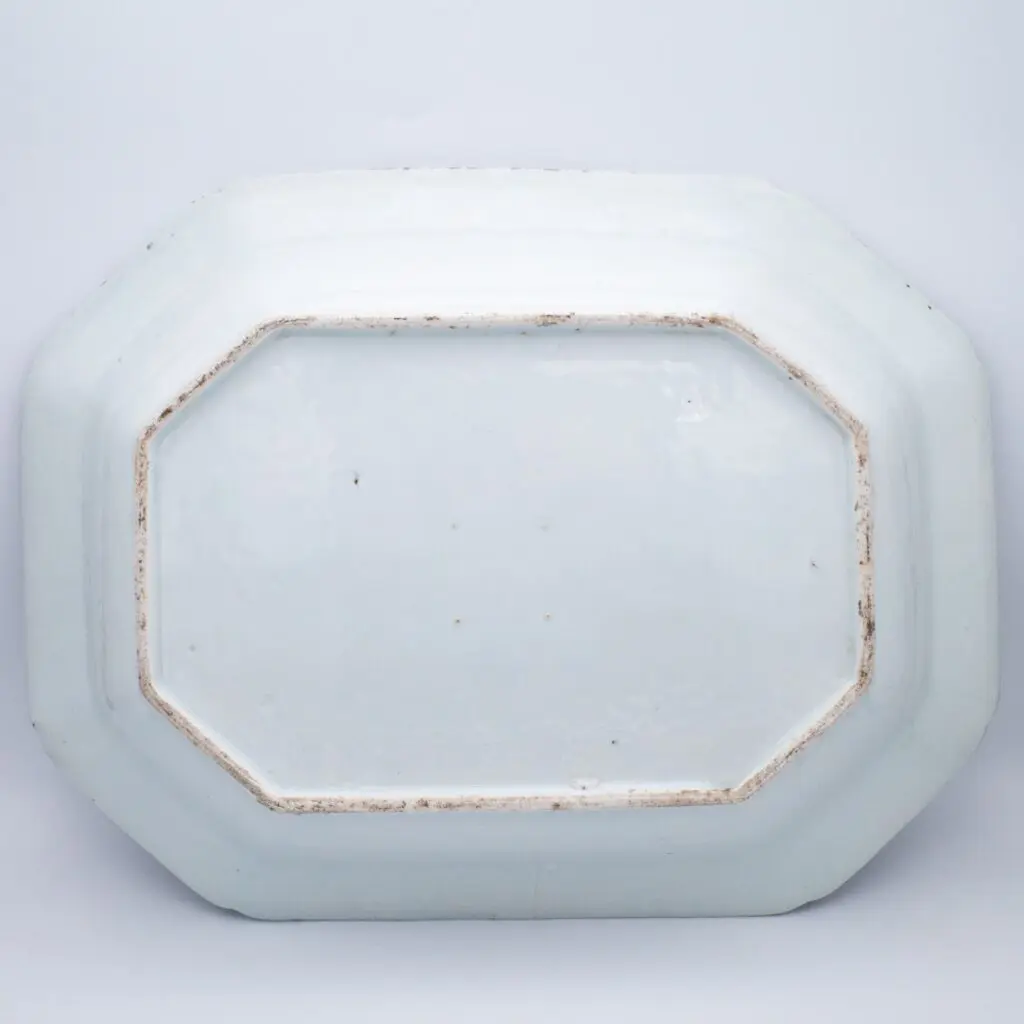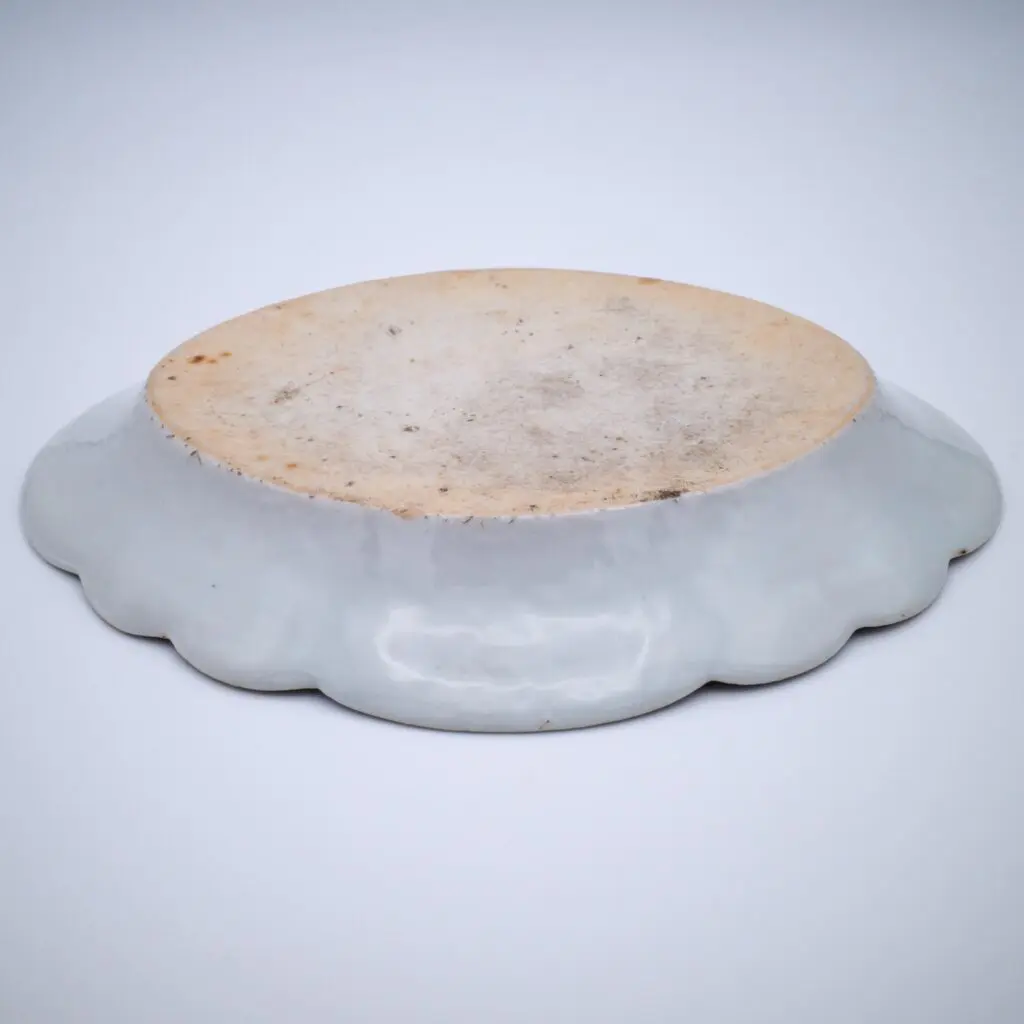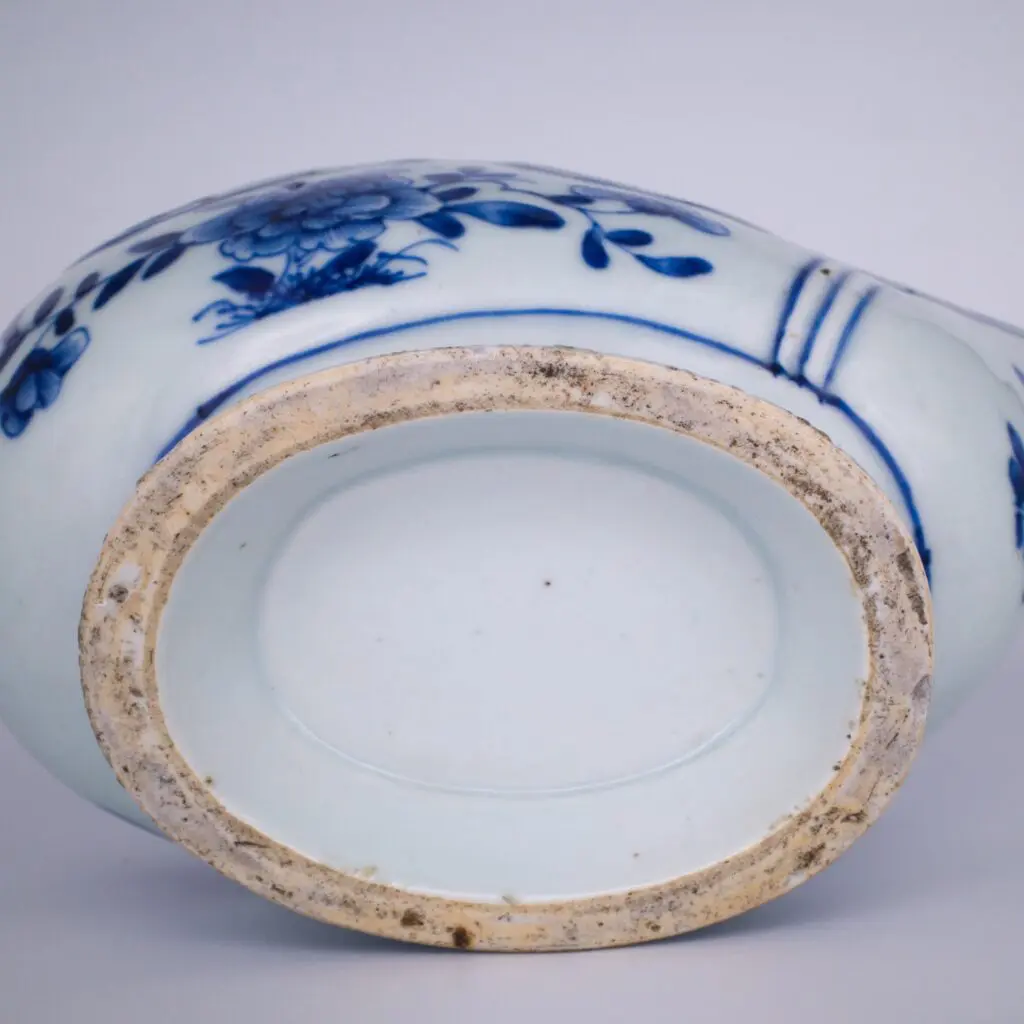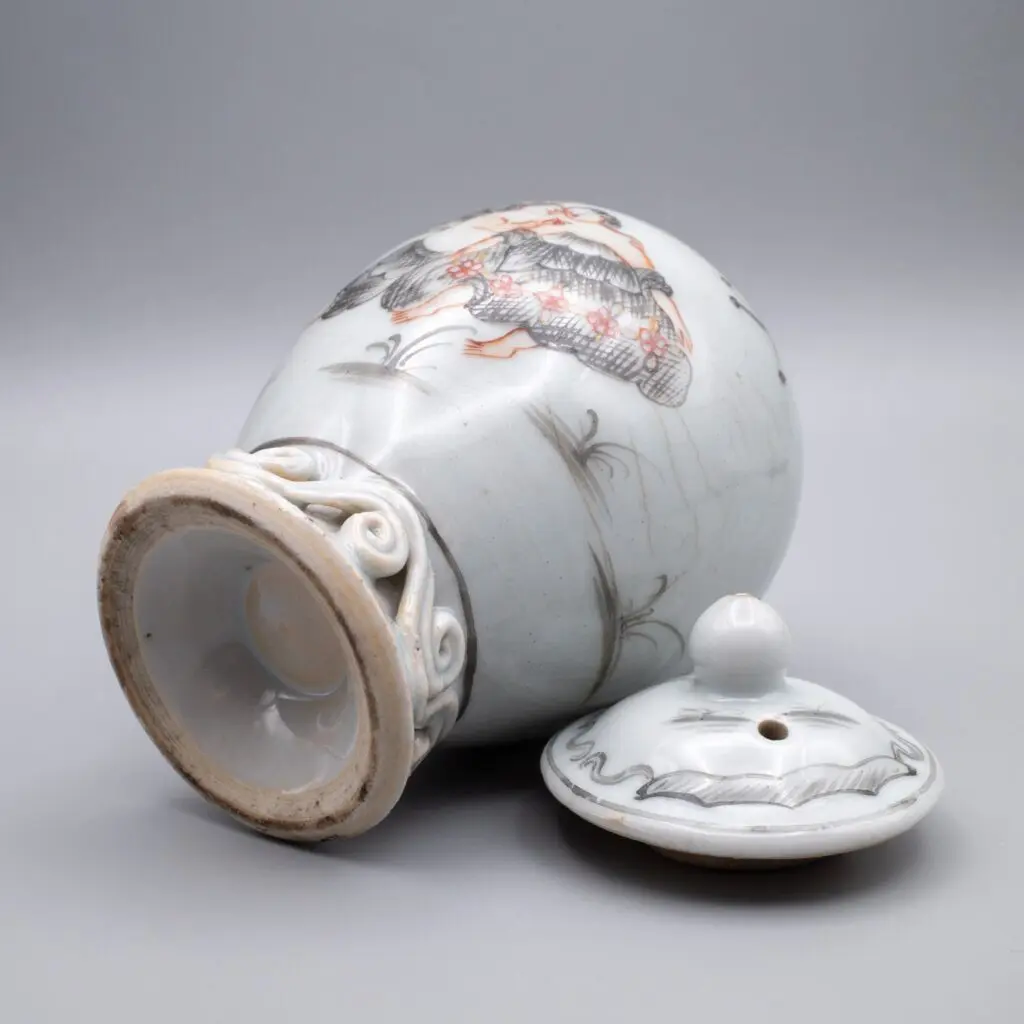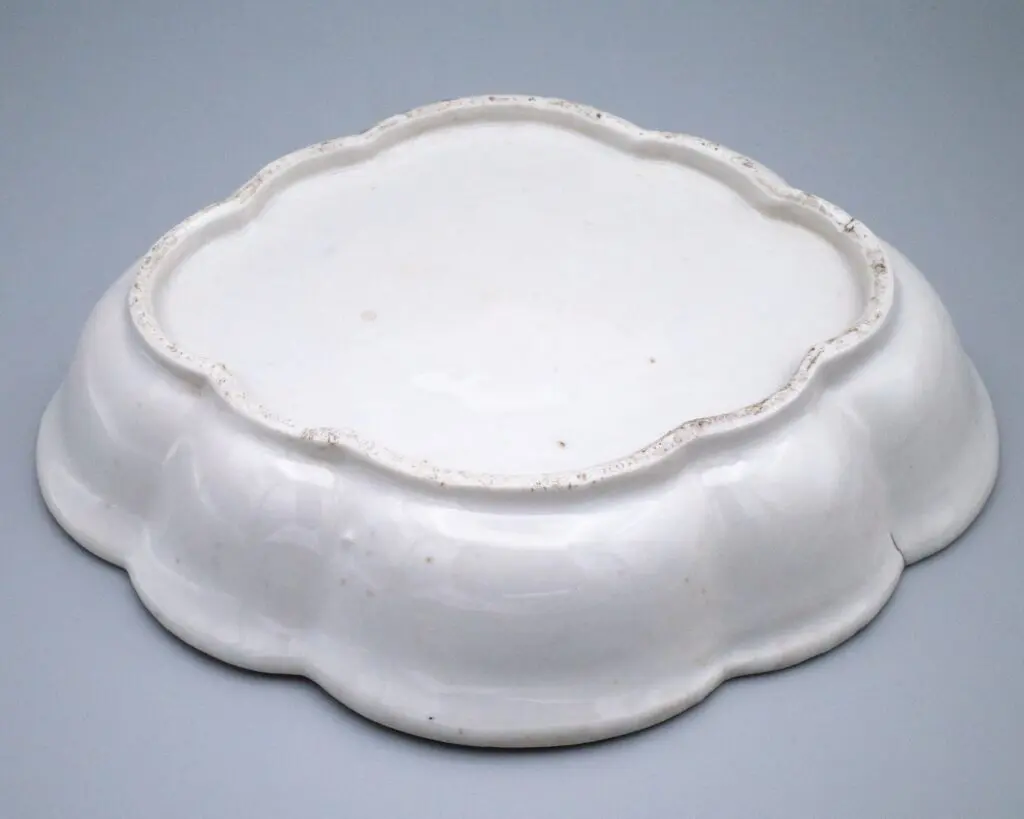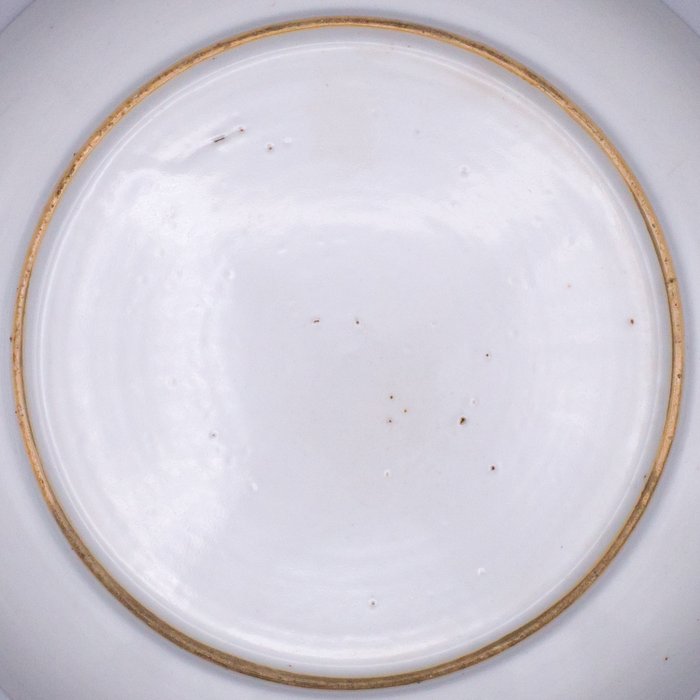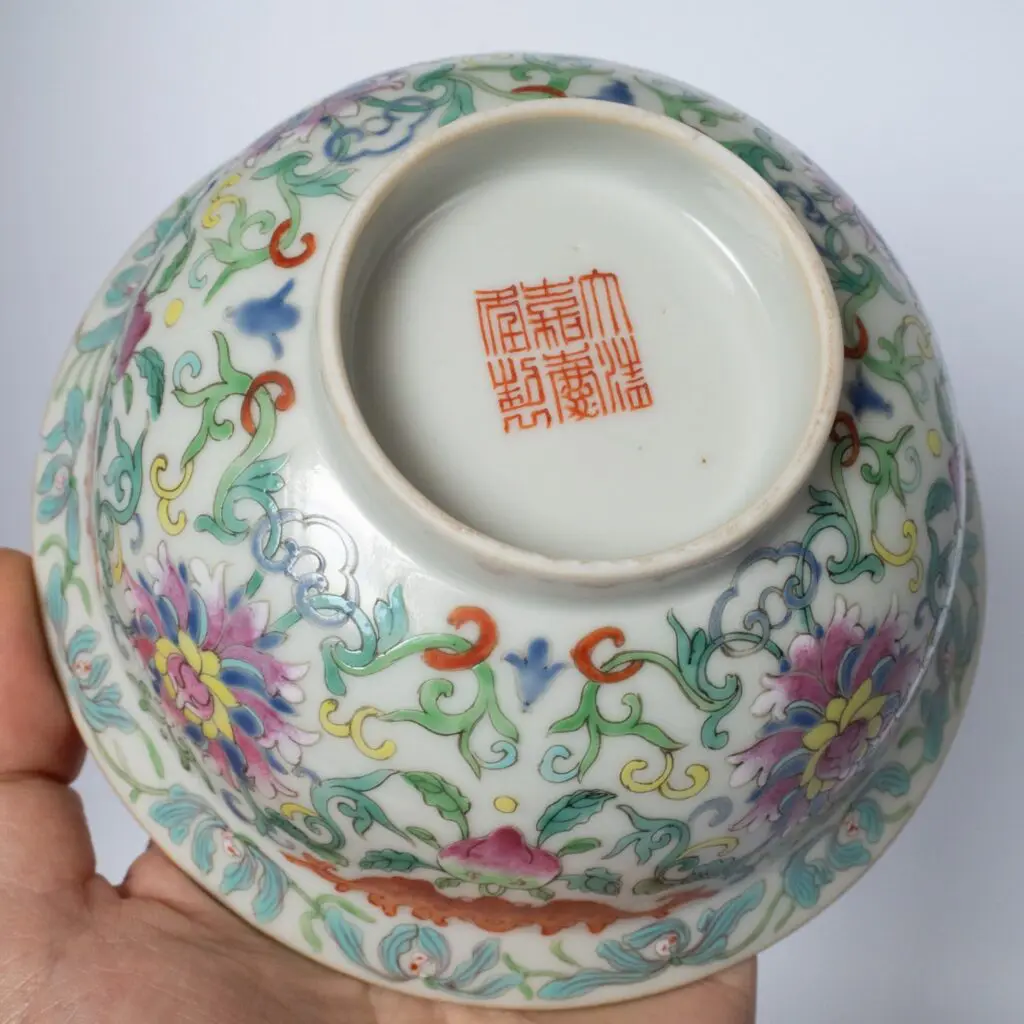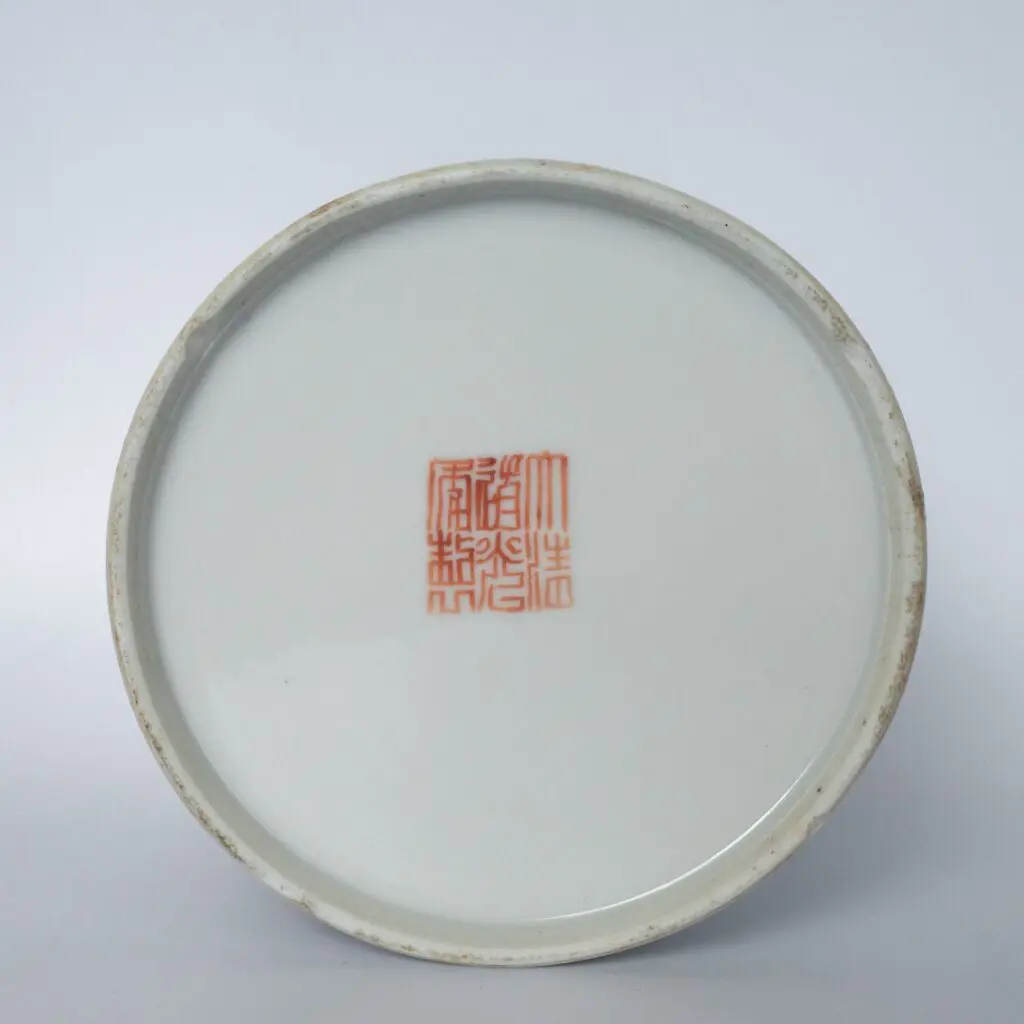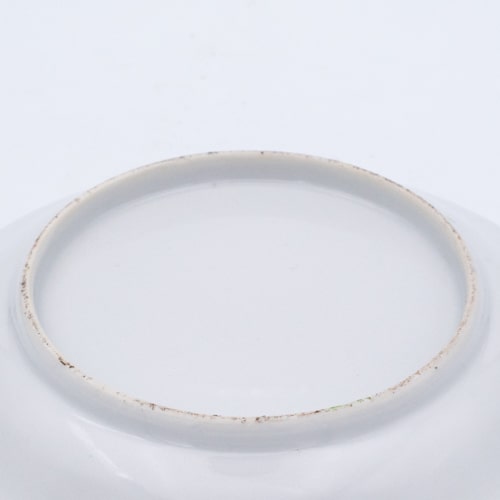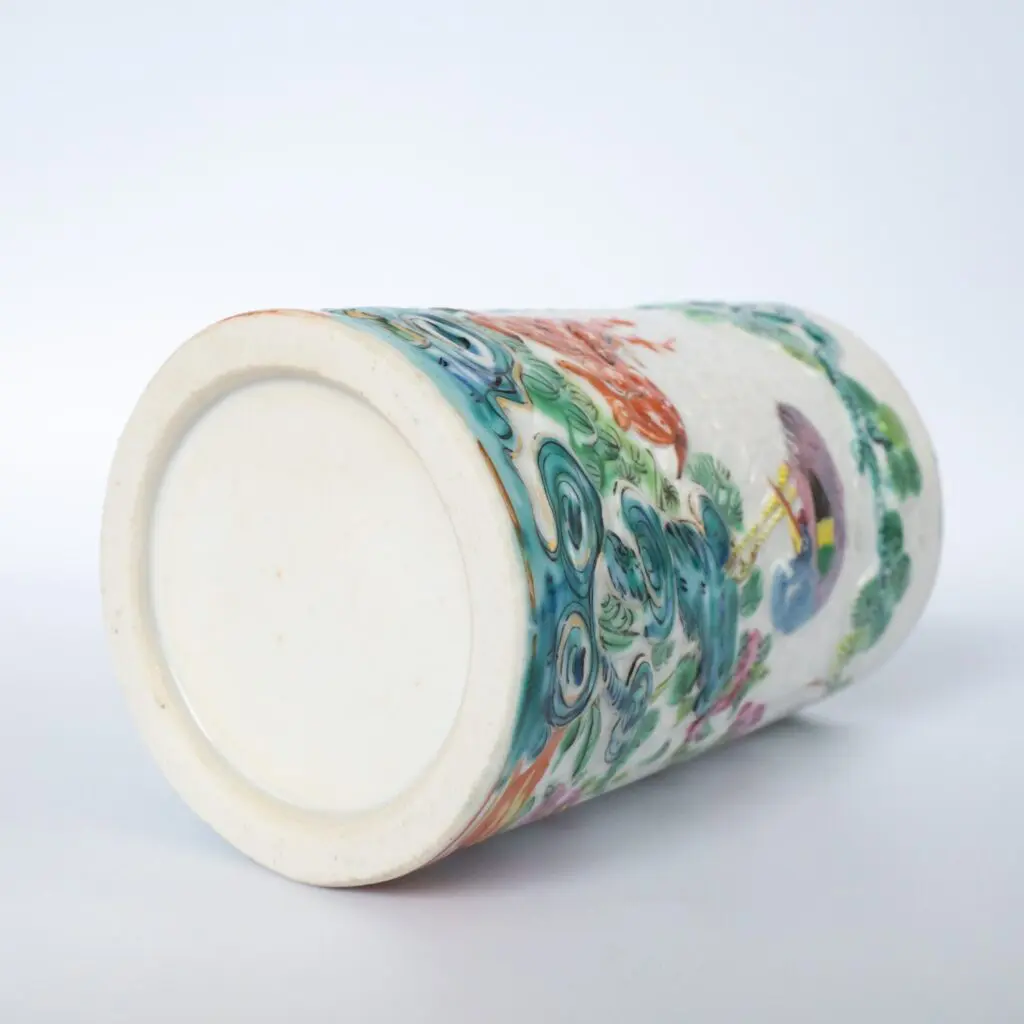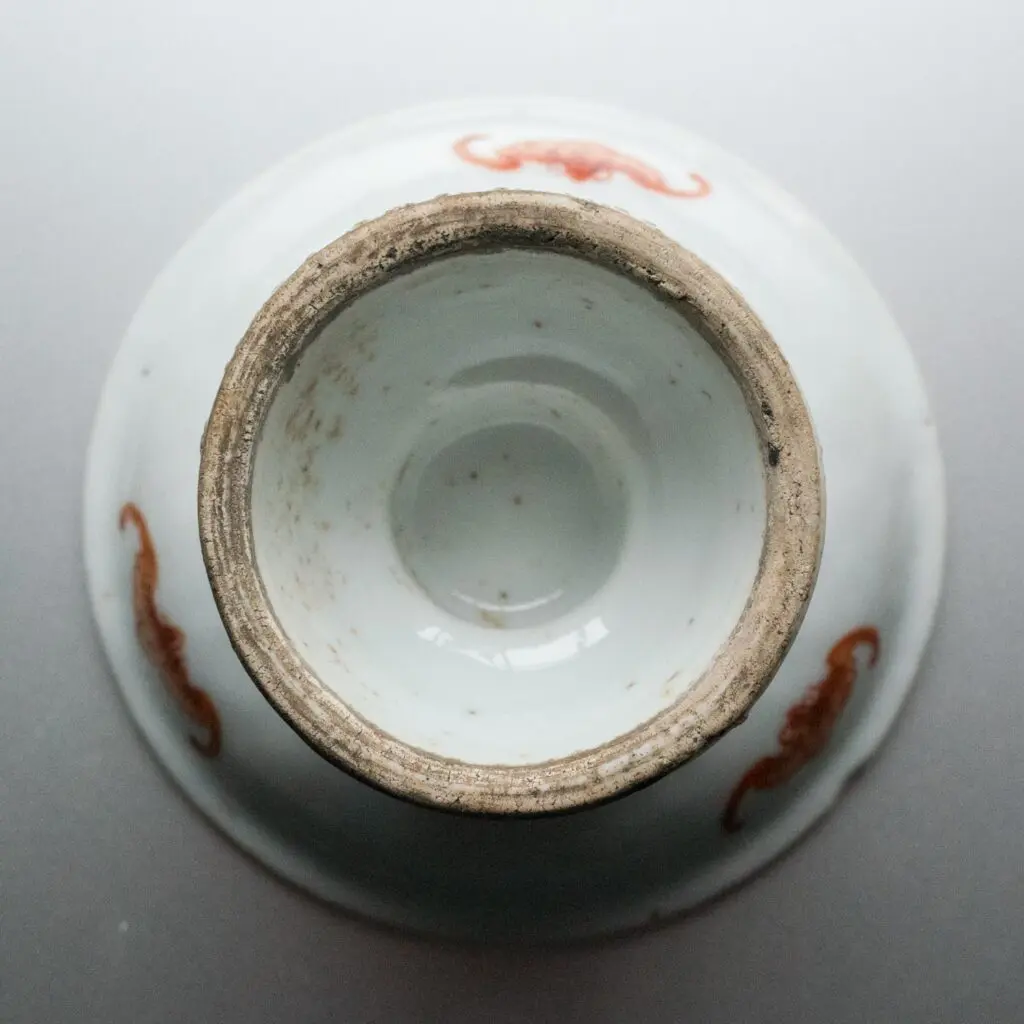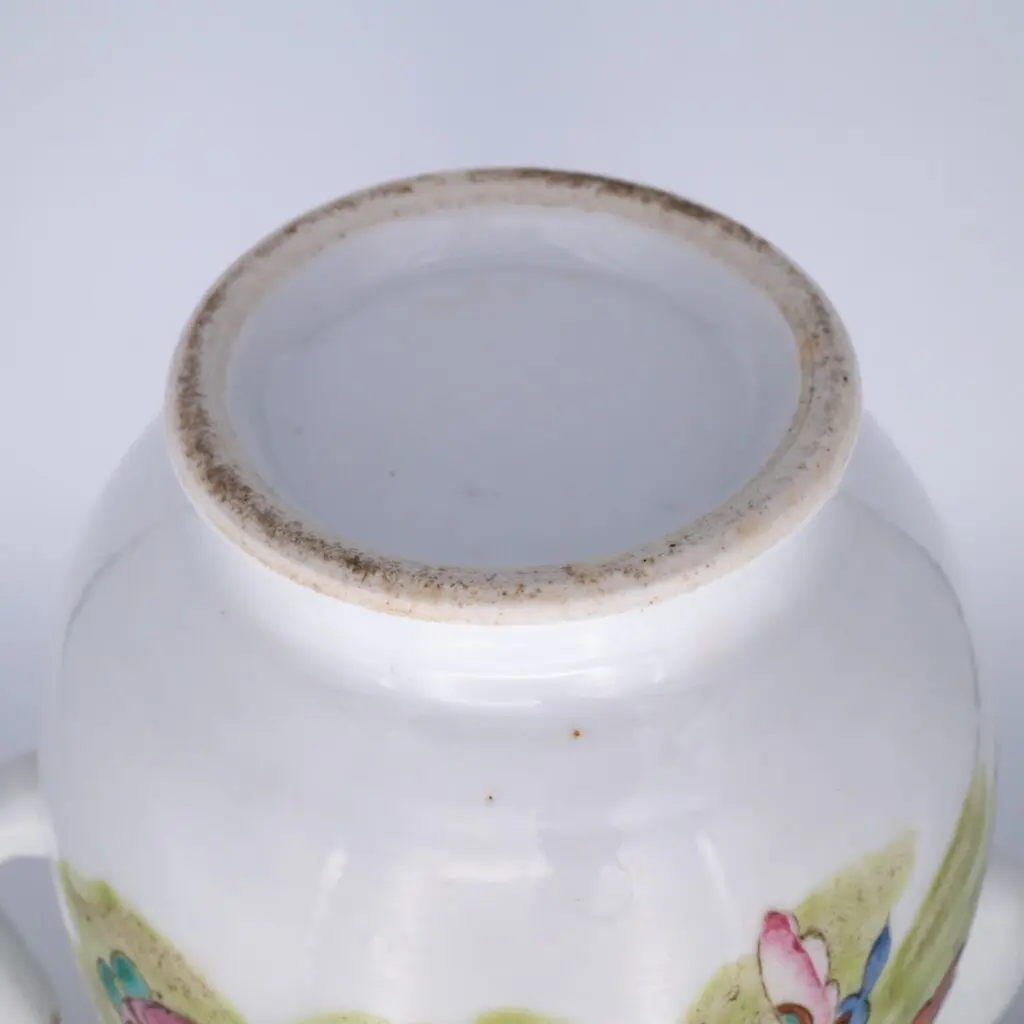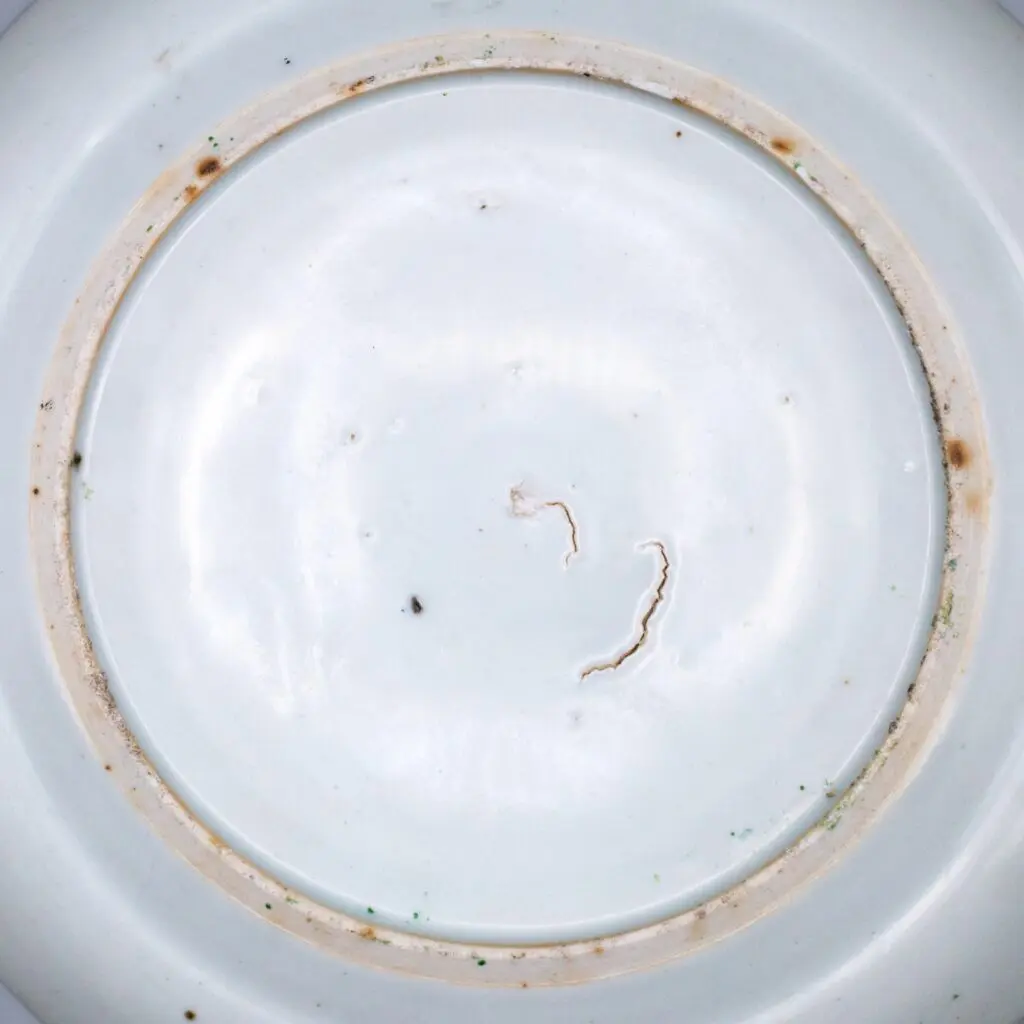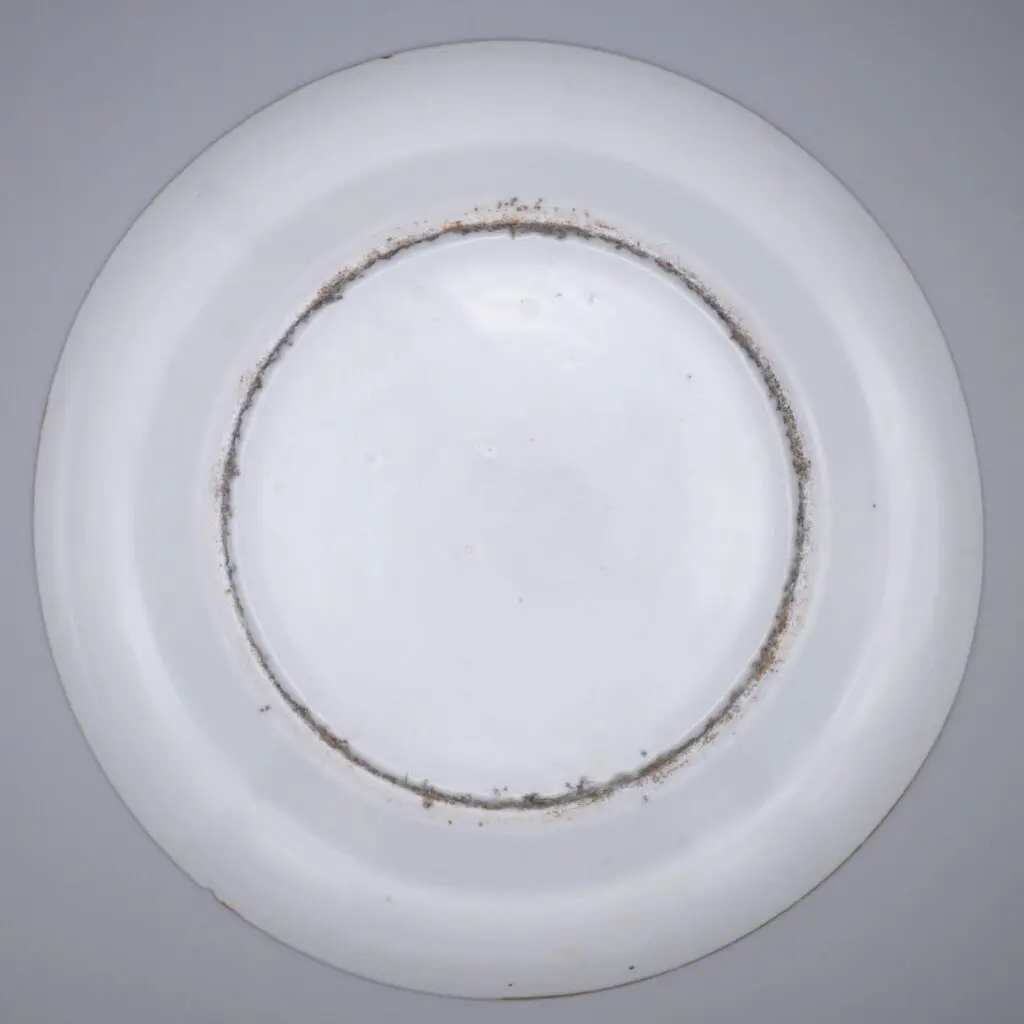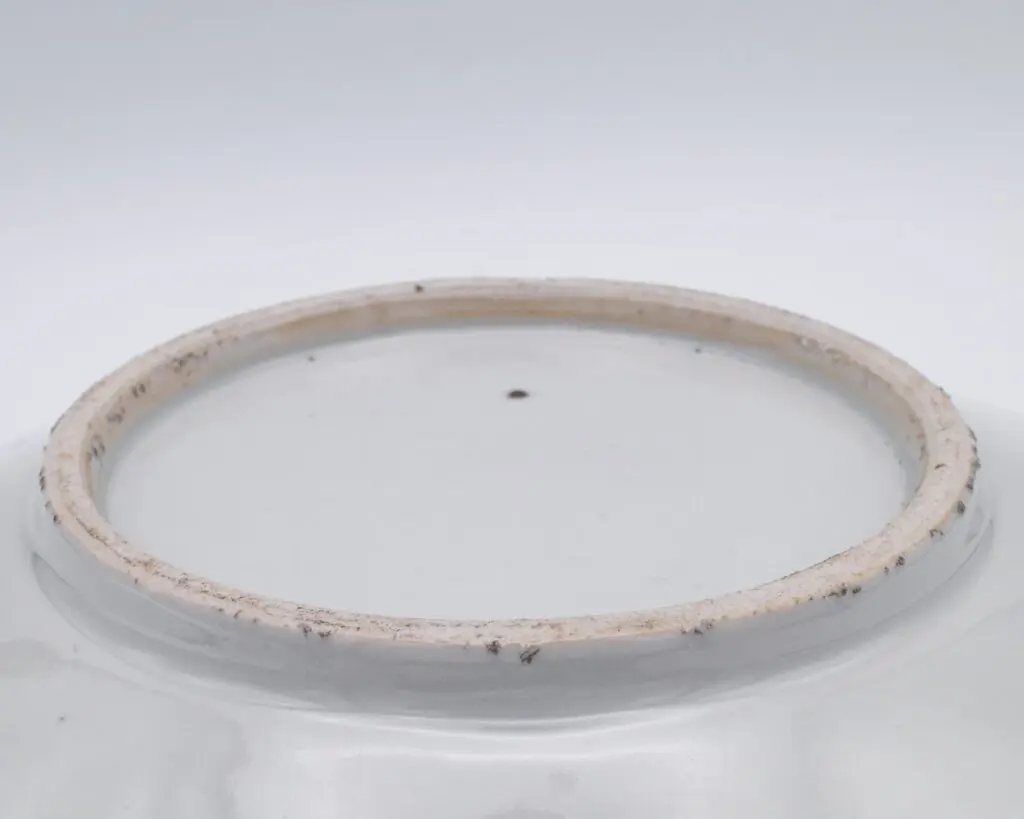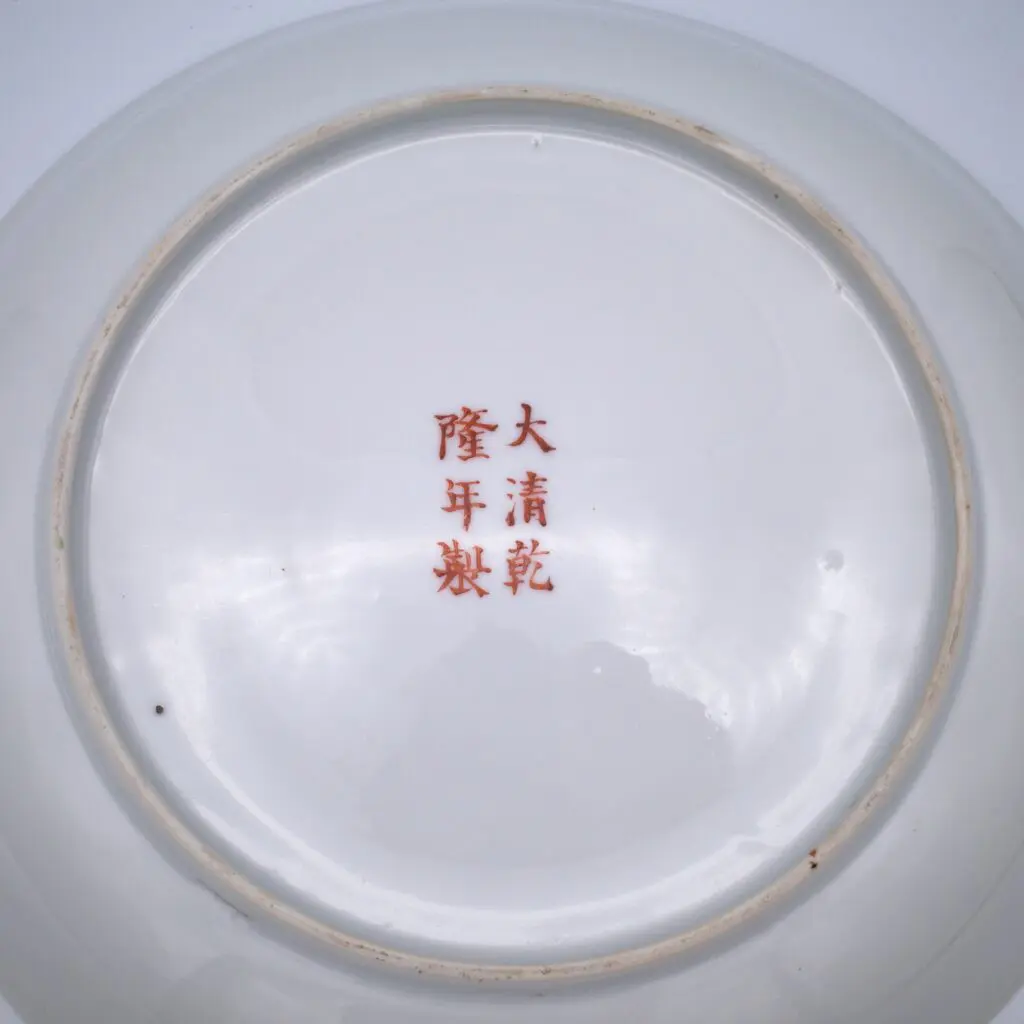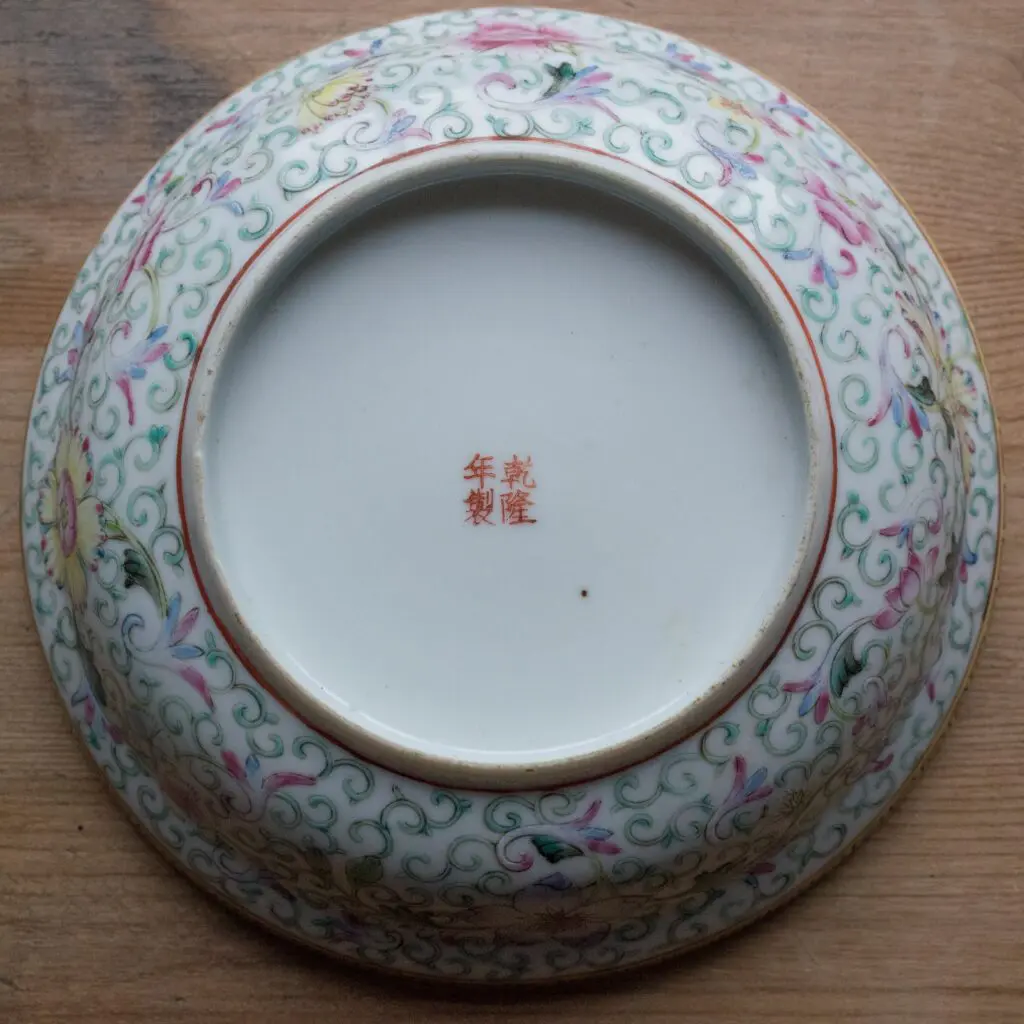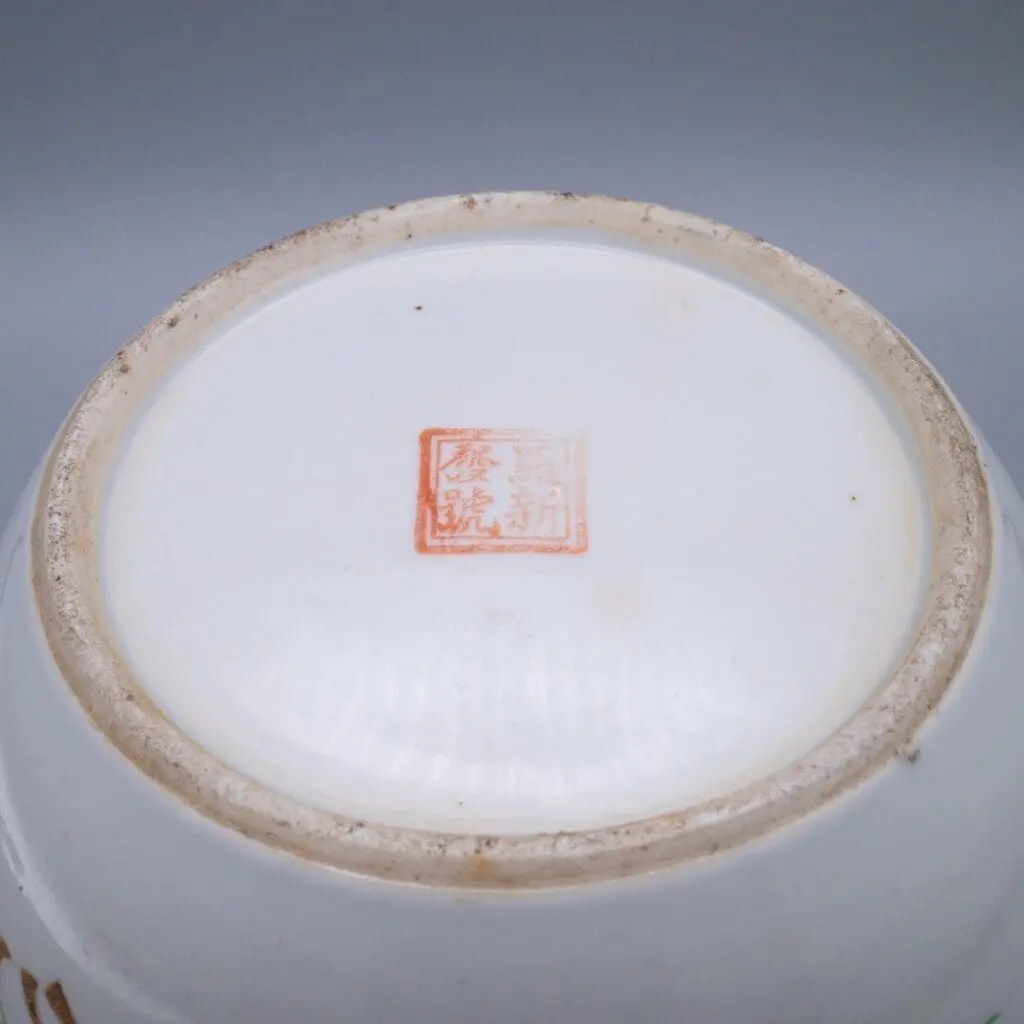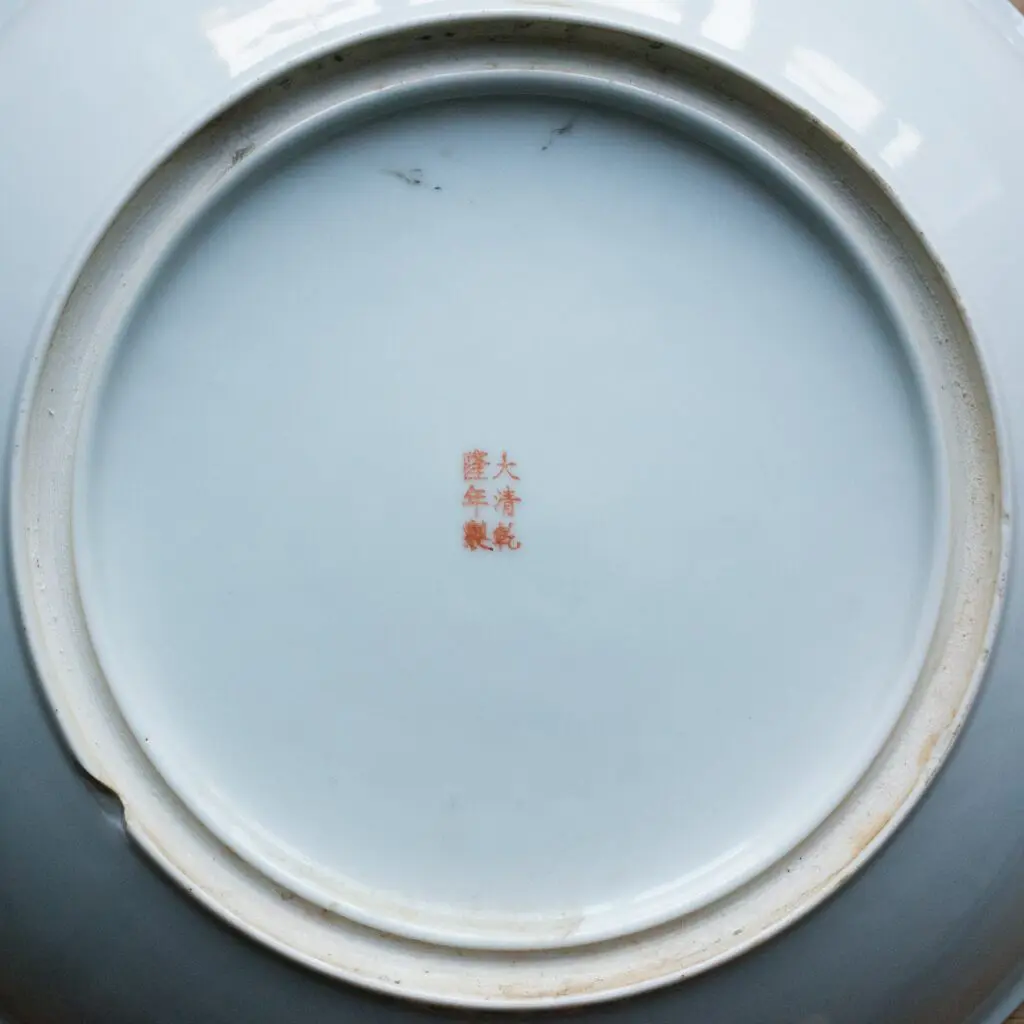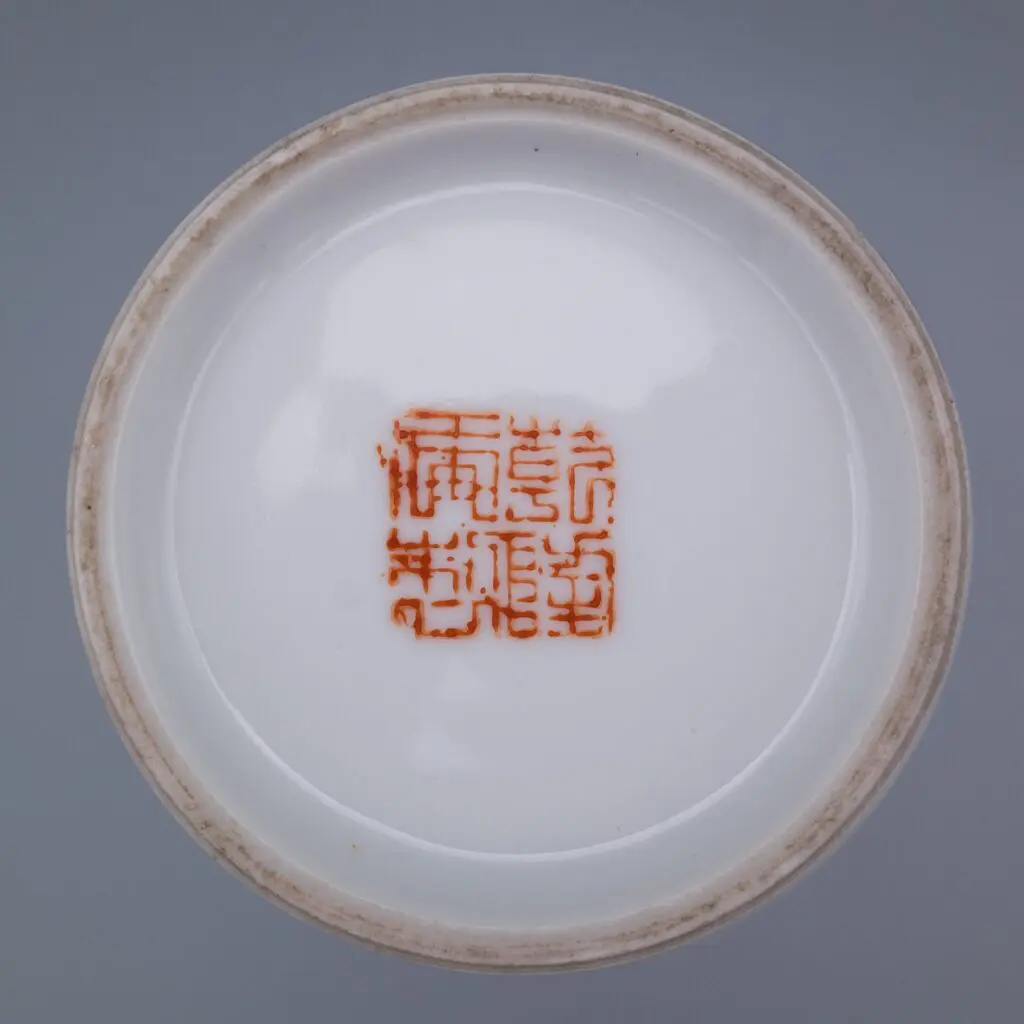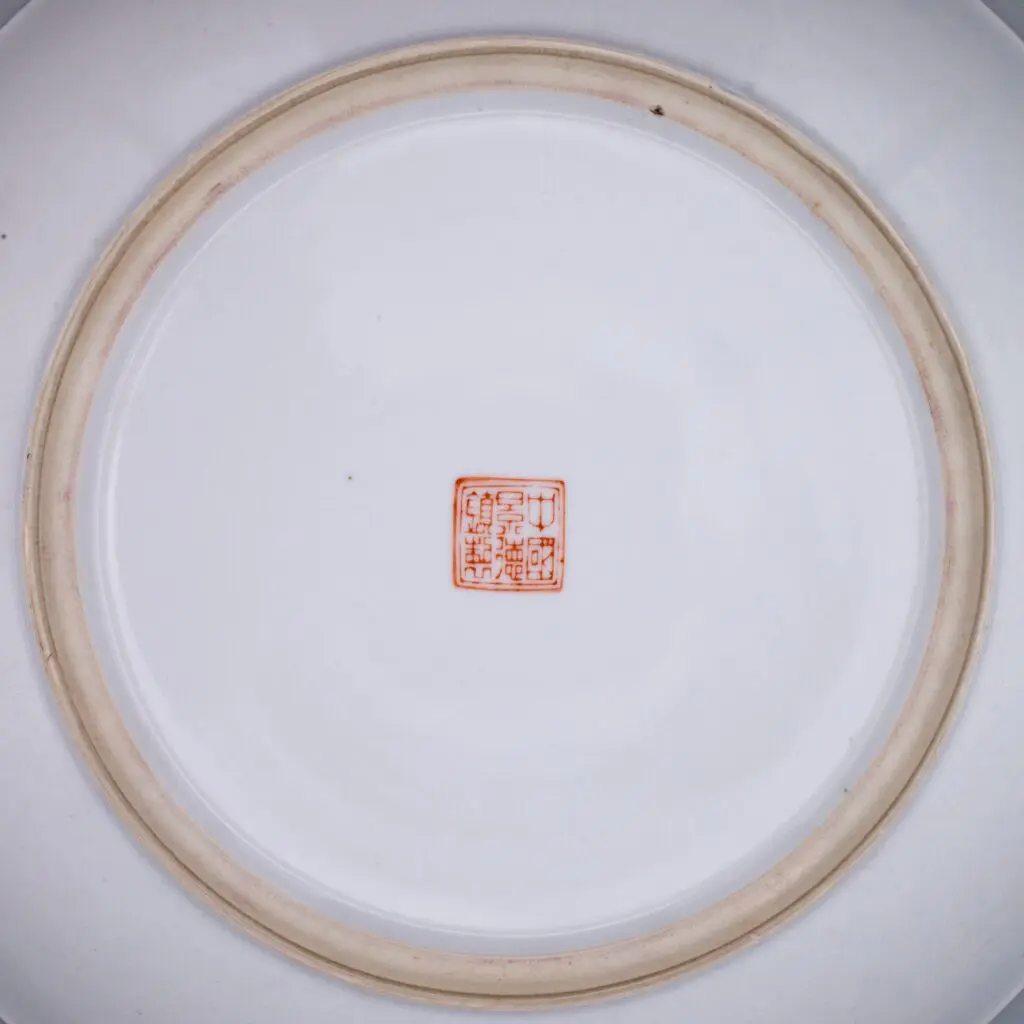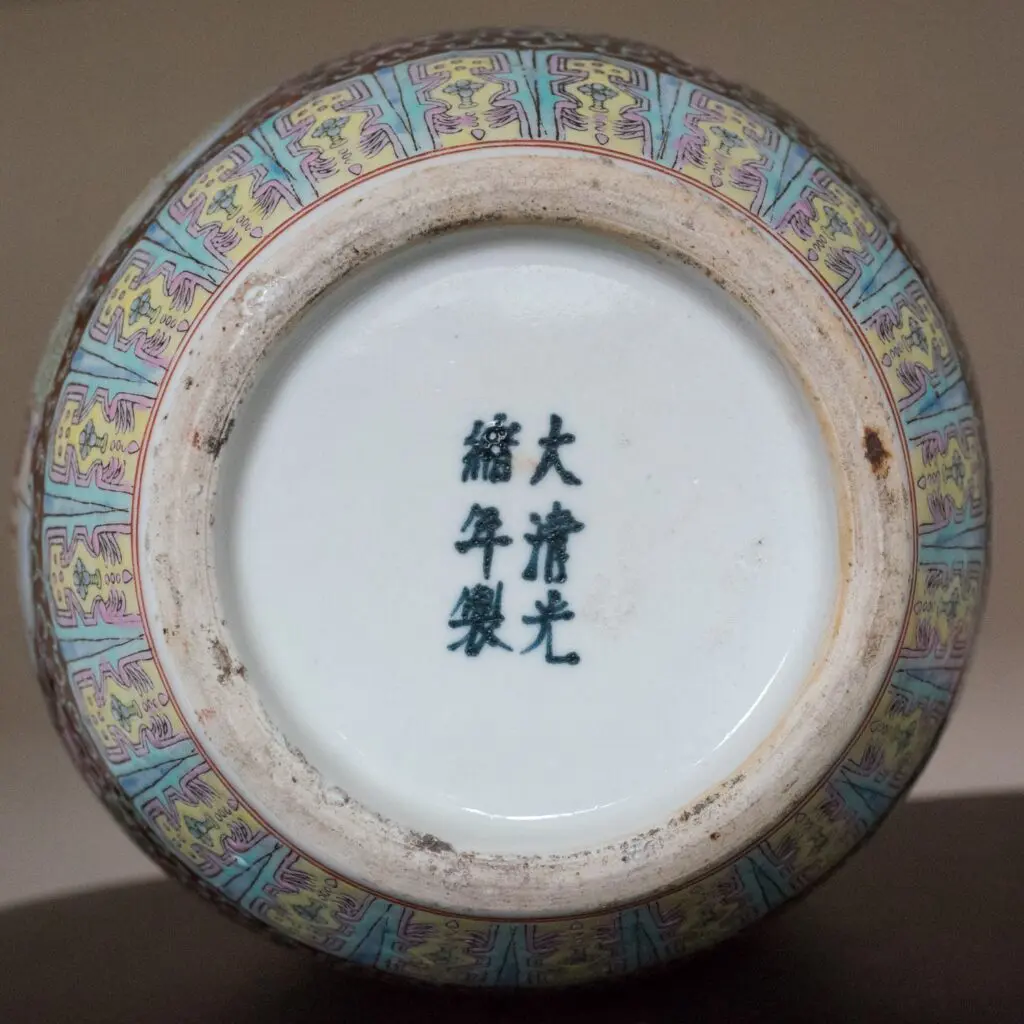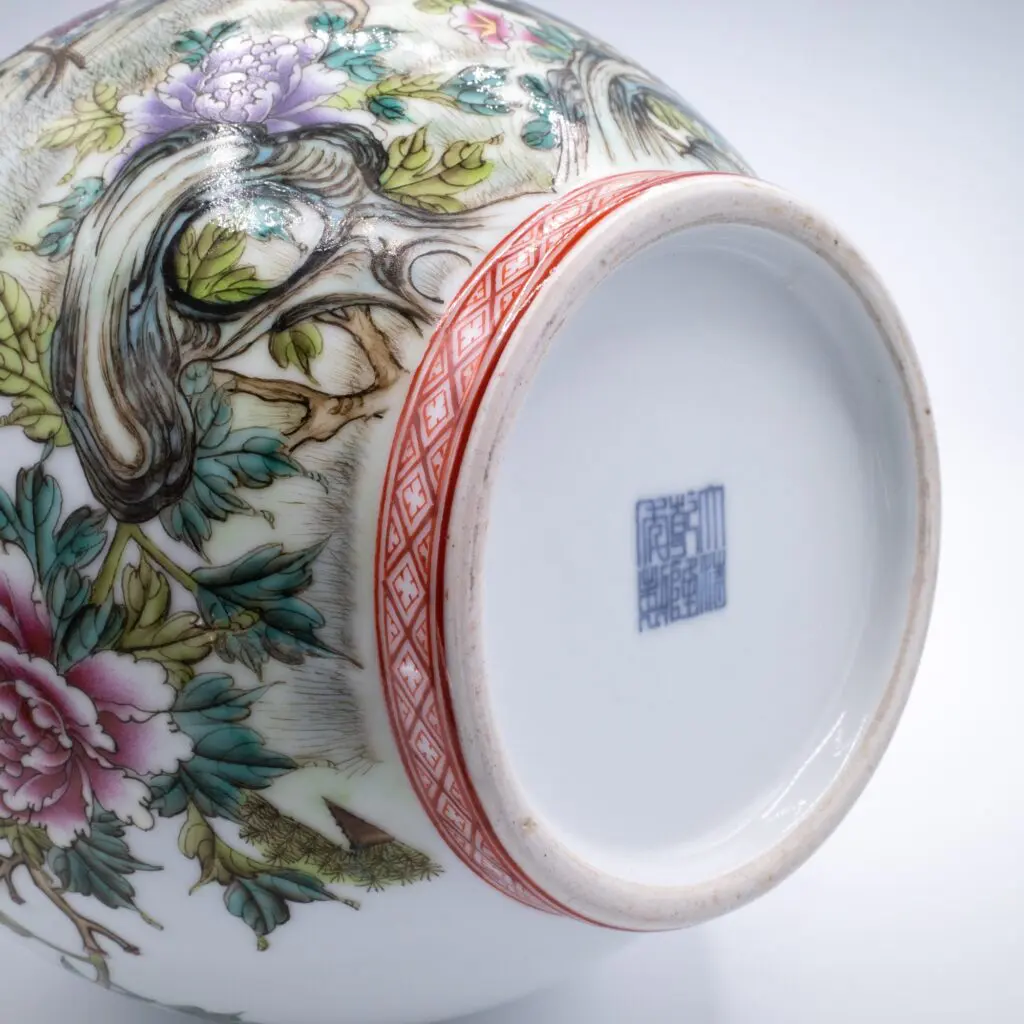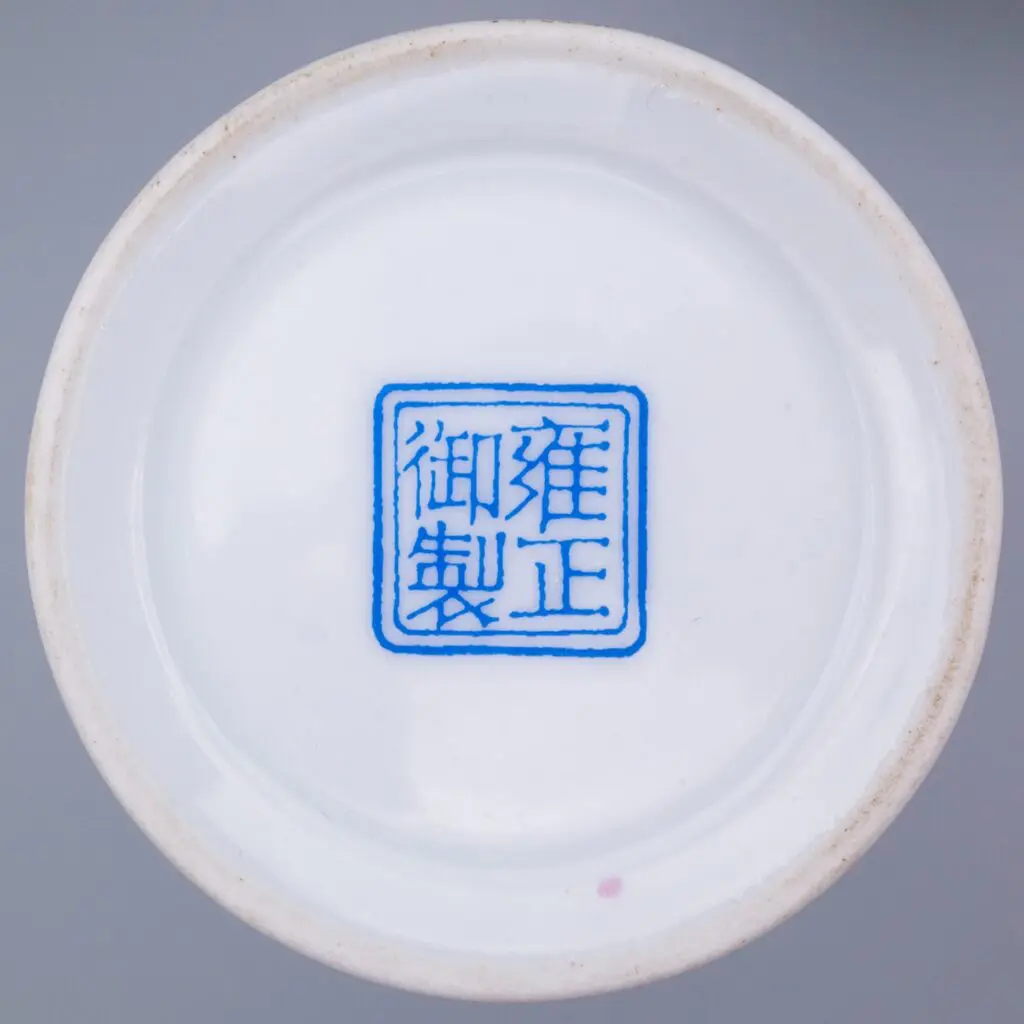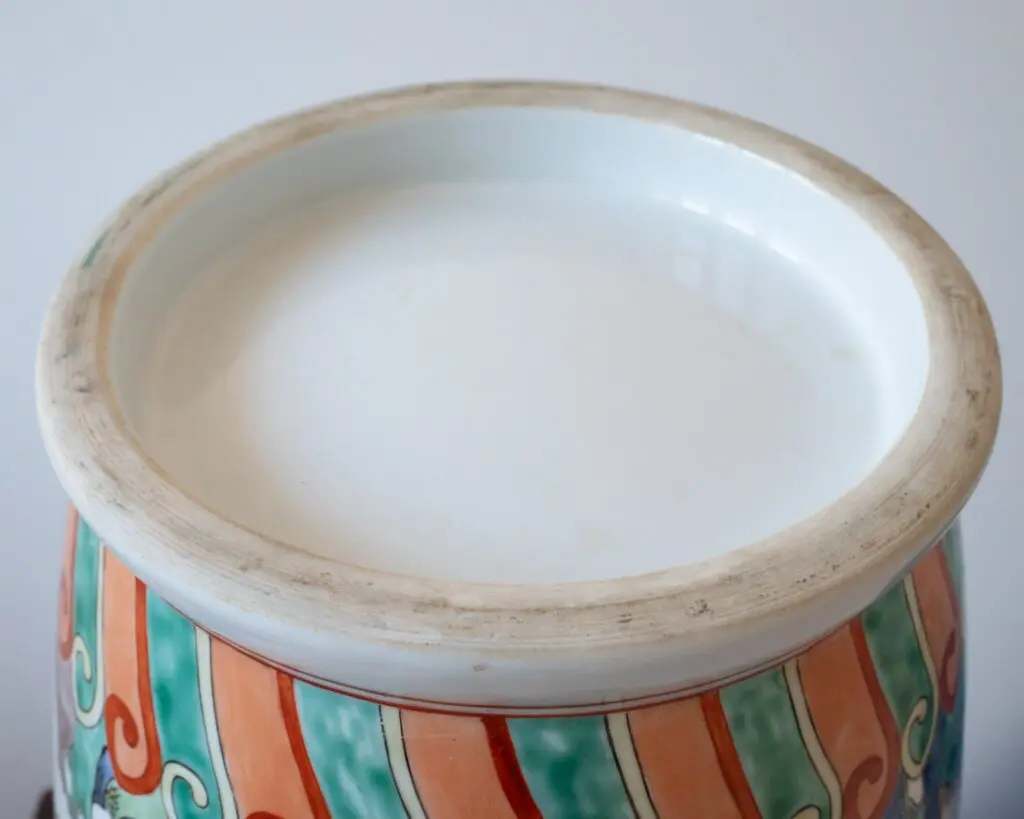Foot rims of Chinese porcelain items could be a very helpful tool when trying to determine whether they are genuine antiques or just one of many modern reproductions that are flooding the market at the moment. When you recognize the trends and forms used during certain periods and dynasties, it is usually quite easy to spot when there is something obviously ‘wrong’ with the piece. However, it’s not always easy to spot a fake based on the foot rim alone, so it is always important to take into consideration all elements of your item when trying to determine its age – material, form, glaze, enamels, firing imperfections, style of the decoration, surface wear, similar known examples etc.
本页列出了明代至 20 世纪陶瓷制品上的中国足圈照片。 所有照片都是我们的,以及我们目前收藏的物品或我们过去处理过的物品的照片。 这些物品均未经过科学测试来确定其确切年龄,并且提供的所有日期均基于我们自己的意见和经验,因此可能略有偏差。 此材料仅供参考,因为它不能反映这些时期生产的作品的总变异性。
For the dating of Chinese porcelain marks, see our 中国瓷器商标鉴定指南.
Last update: November 2025
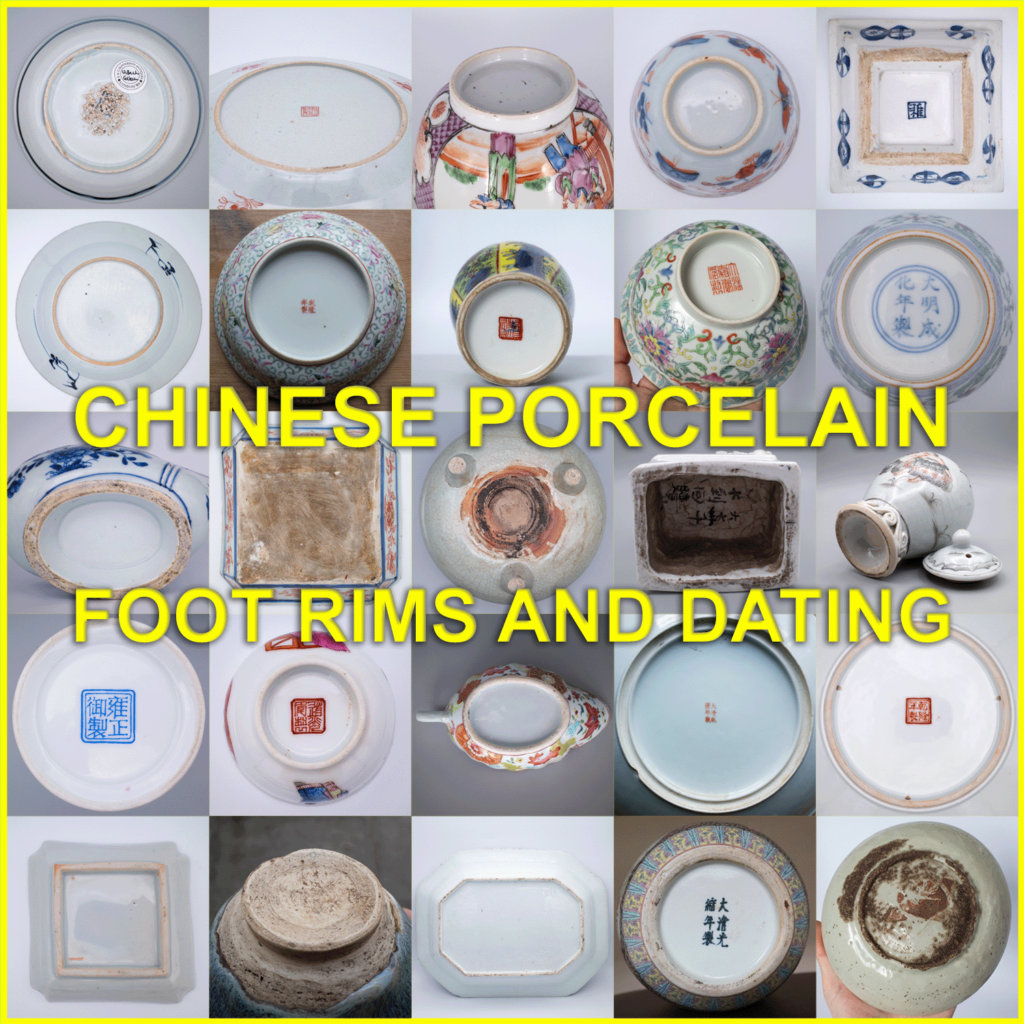
需要更多帮助吗?

明朝(1368-1644)
清初——康熙/雍正时期

Kangxi period ‘cafe au lait’ glazed porcelain dish with overglaze famille verte decoration, c. 1700.
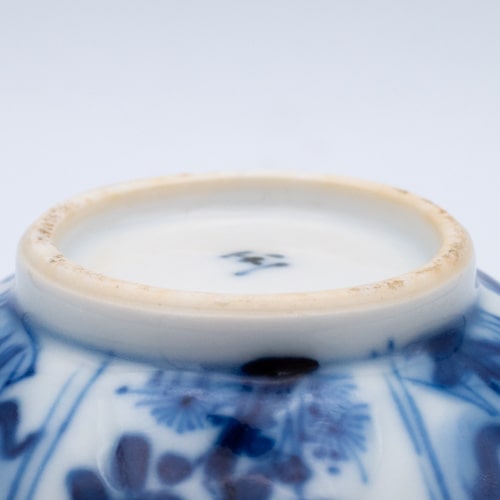
Kangxi period (1661-1722) miniature teapot decorated in popular ‘Long Eliza’ (Lange Lijsen) pattern and with underglaze blue 玉 ‘Yu’ (jade) character mark.
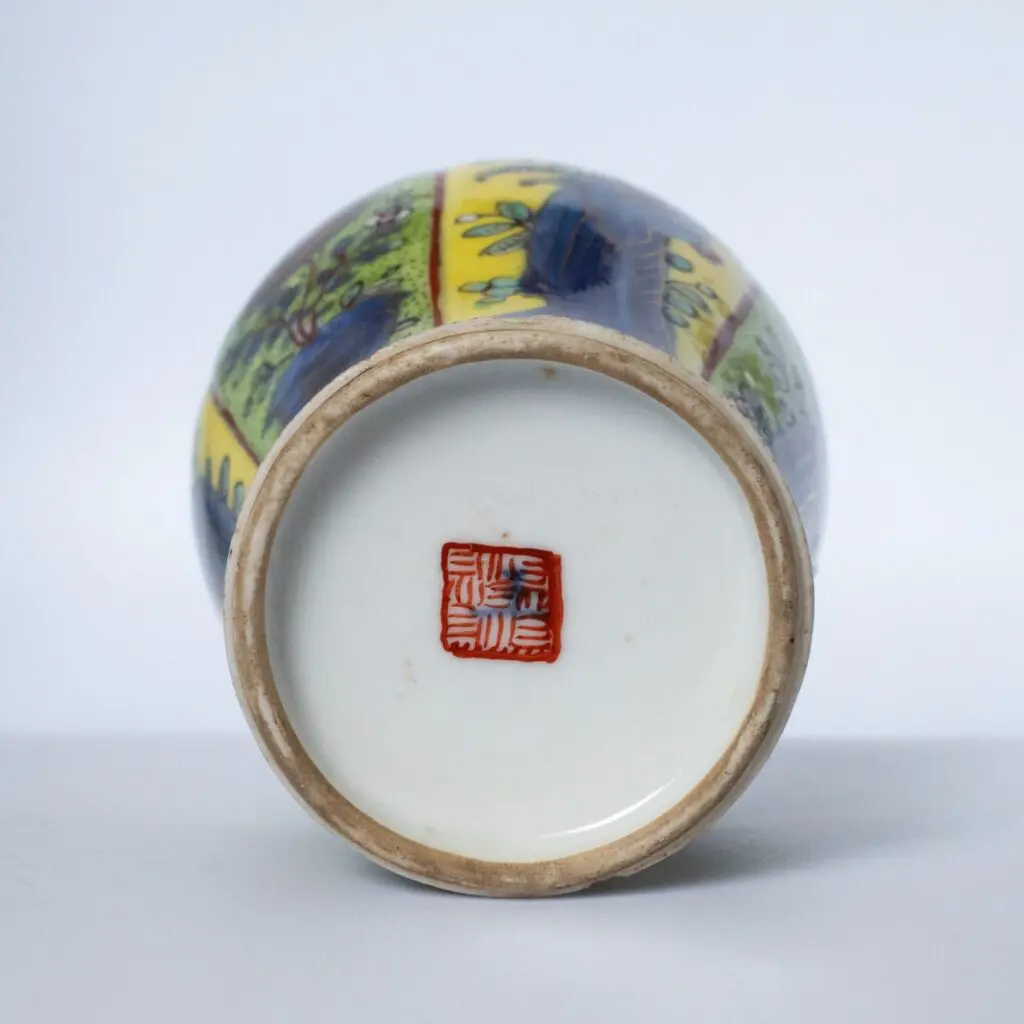
Kangxi period ‘Long Eliza’ vase with later European decoration and pseudo-Chinese iron red mark painted over original underglaze blue ‘Yu’ mark, early 18th century.
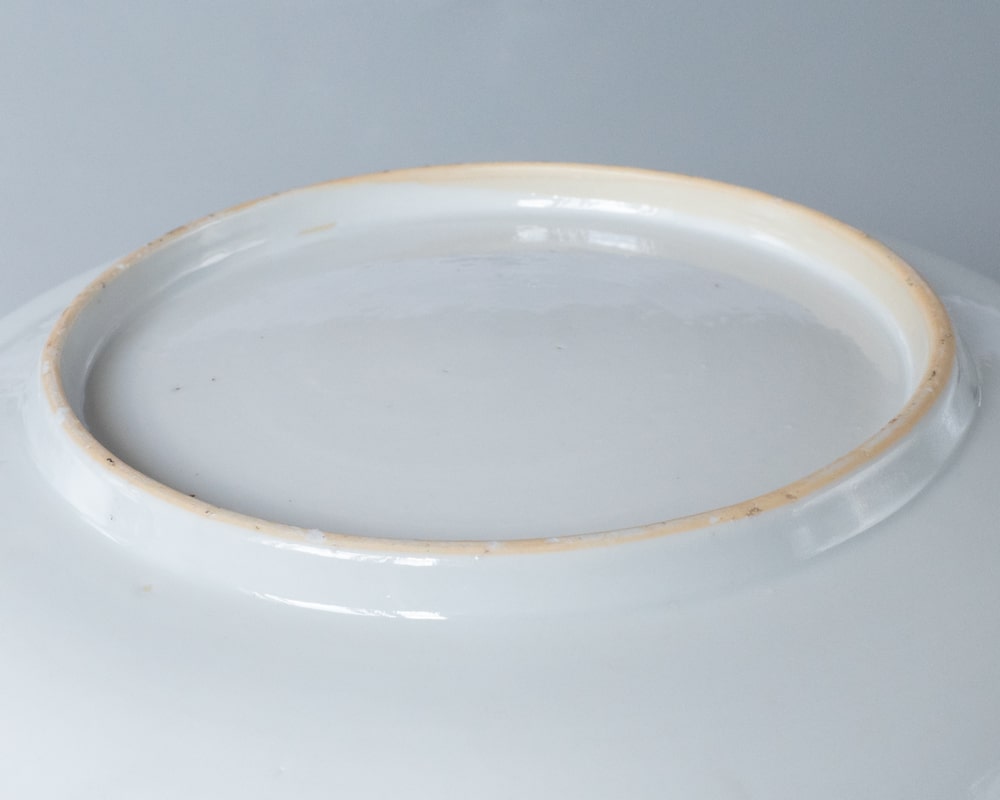
Foot rim of a similar Kangxi period porcelain deep dish, this time with Dutch Kakiemon style ‘Old Lady’ pattern featuring figures listening to a nightingale. Early 18th century.
清朝 – 乾隆时期(1735-1796)
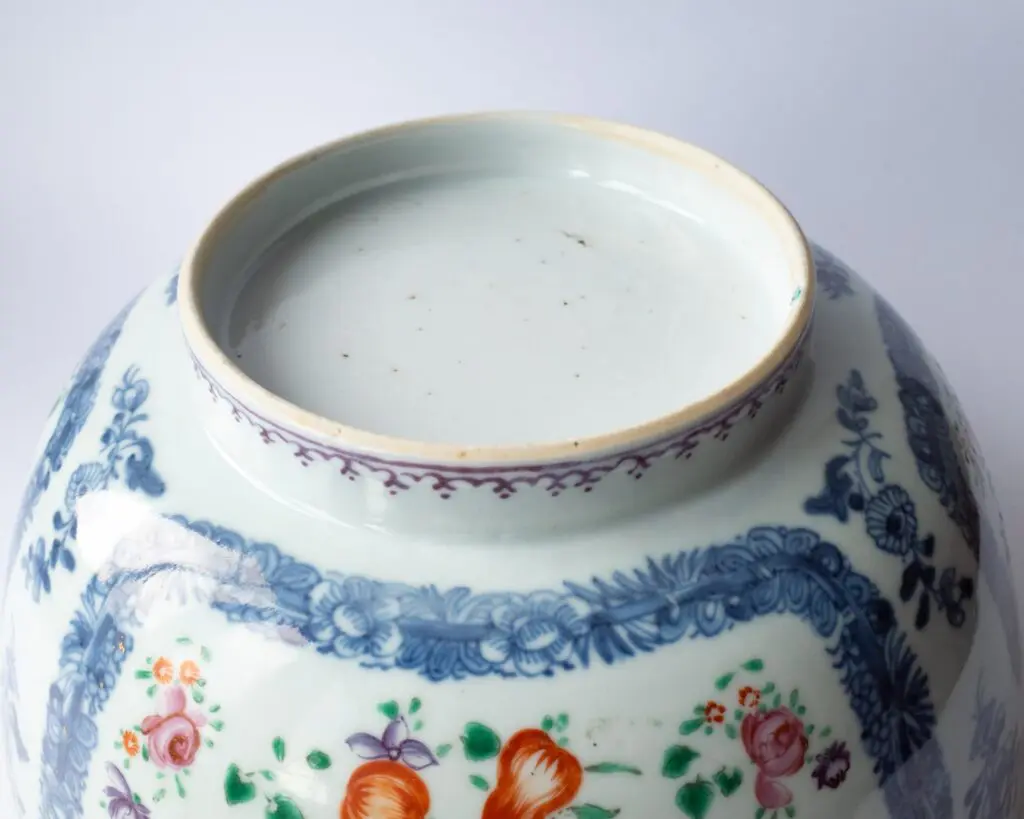
A Qianlong period punch bowl decorated with underglaze blue and overglaze famille rose enamels, later 18th century.
清朝 – 19世纪初
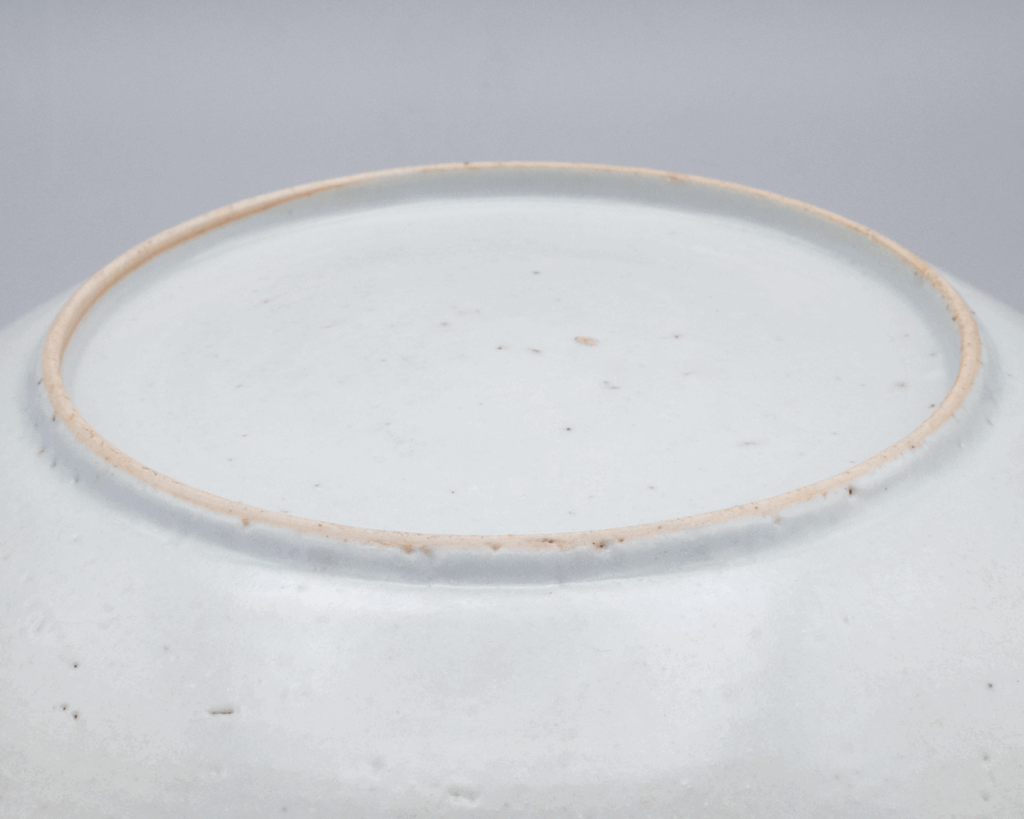
Late 18th – early 19th century, c. Jiaqing period export porcelain dish made for the Persian/Islamic market.
晚清 – 十九世纪/二十世纪初
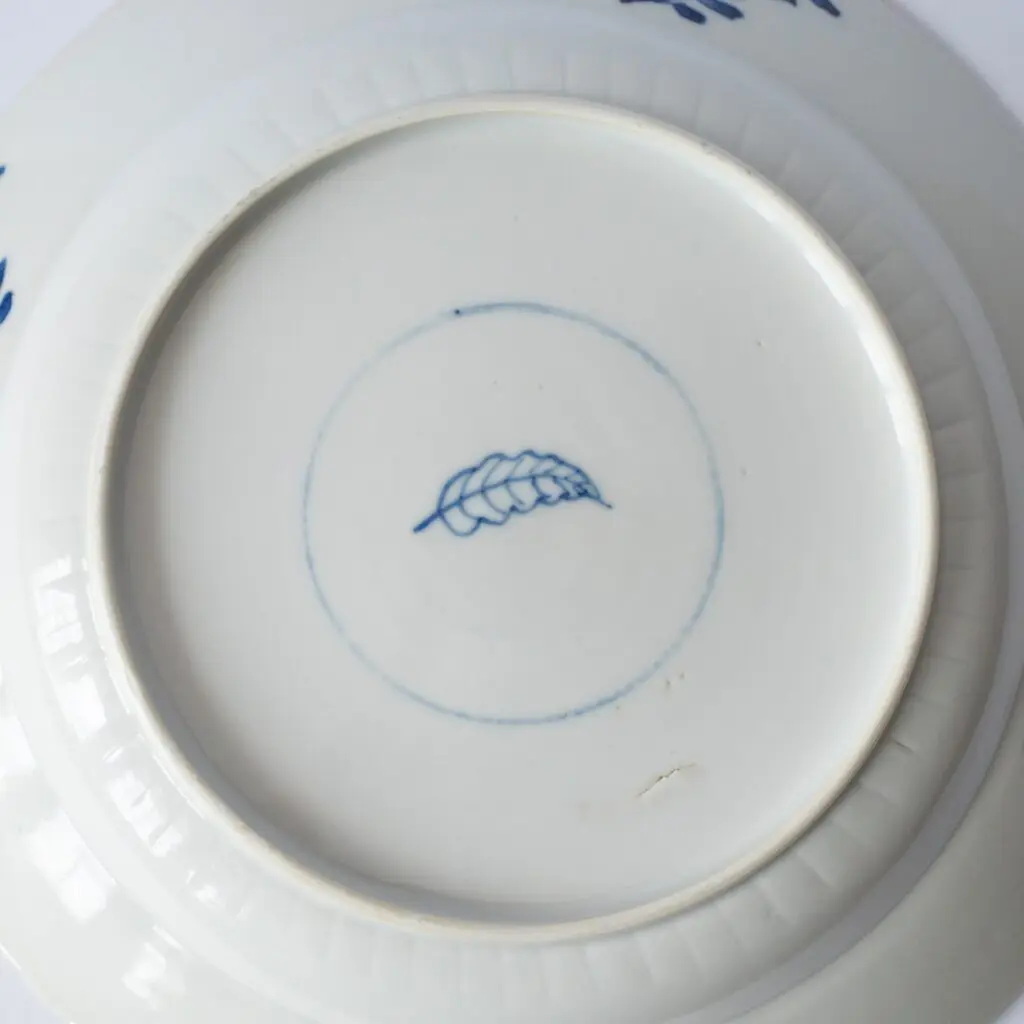
A Kangxi revival blue and white porcelain dish with Kangxi style underglaze blue artemisia leaf mark inside a single ring, late 19th or 20th century.
民国时期(1912-1949)
中华人民共和国 (PRoC) – 1949 年之后

Later 20th century doucai jar with a six-character underglaze blue Chenghua reign mark inside double circles.
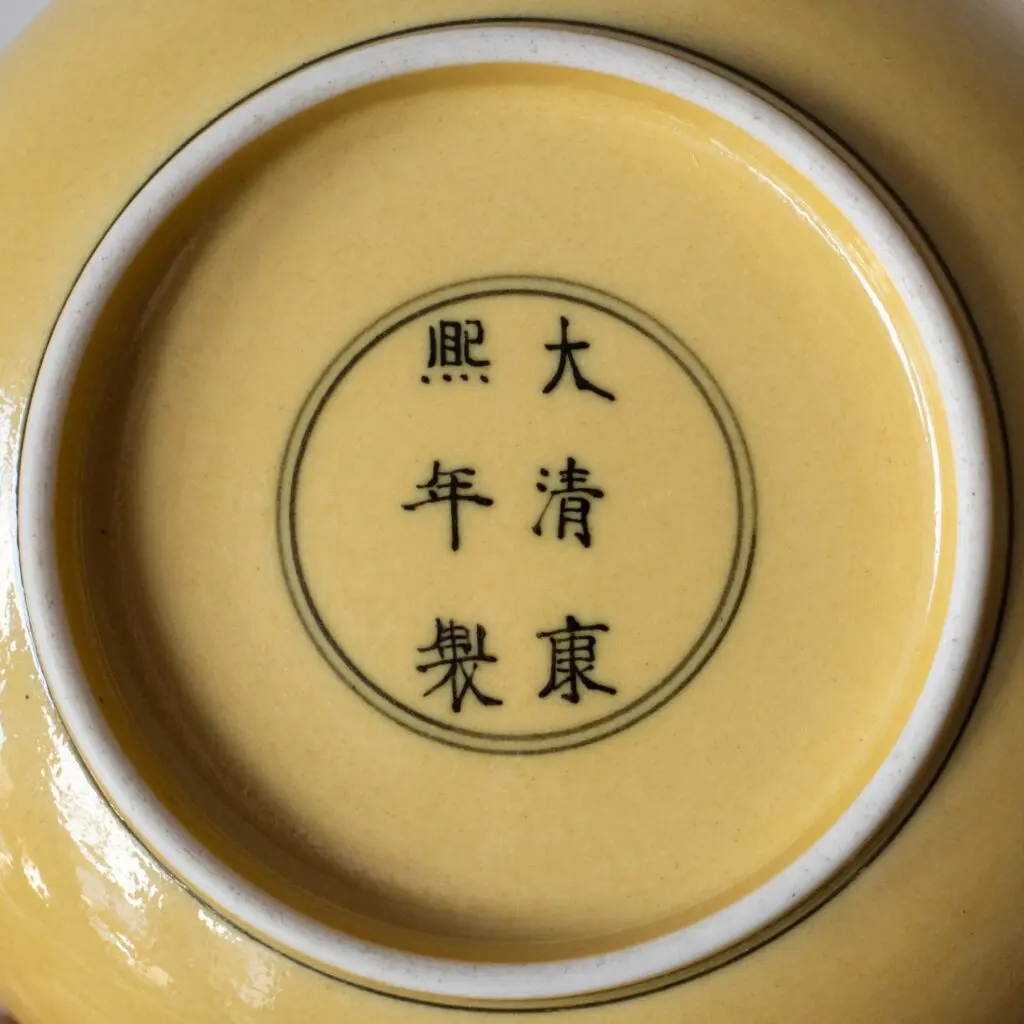
Later 20th century yellow-ground saucer with a pair of dragons. Marked with a six-character underglaze Kangxi reign mark inside double circles.
需要更多帮助吗?

